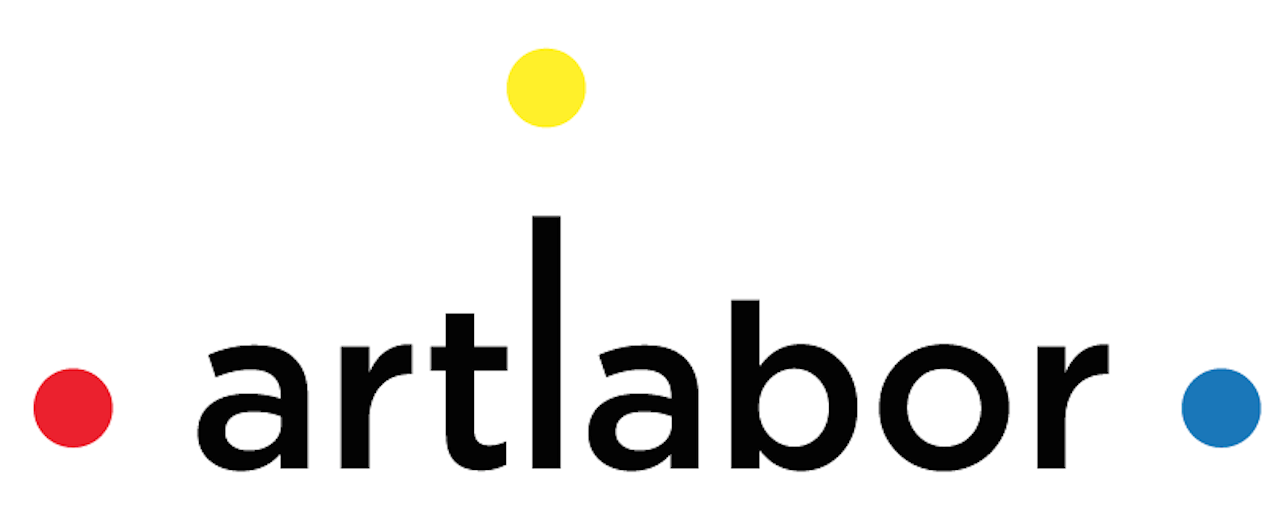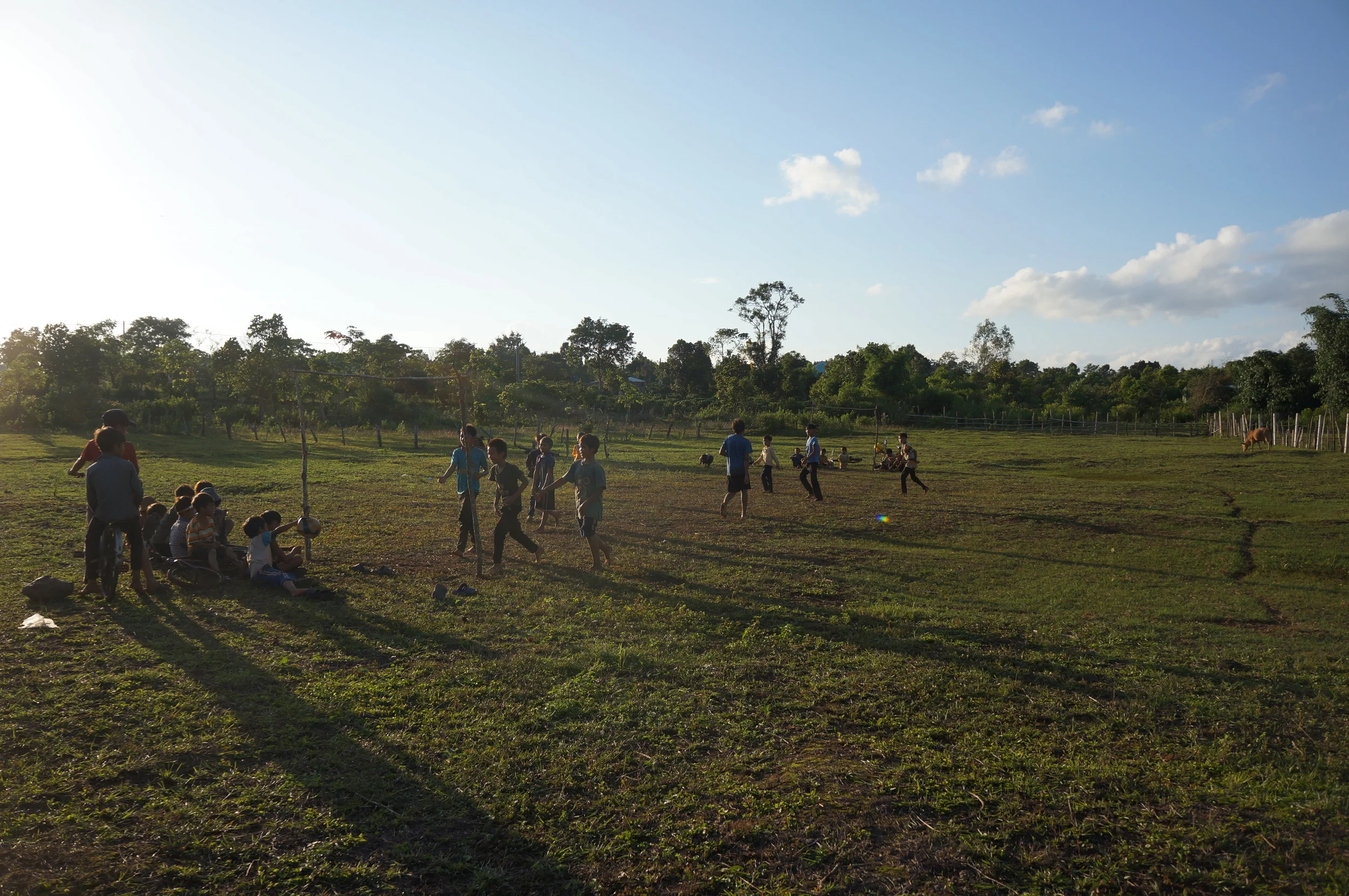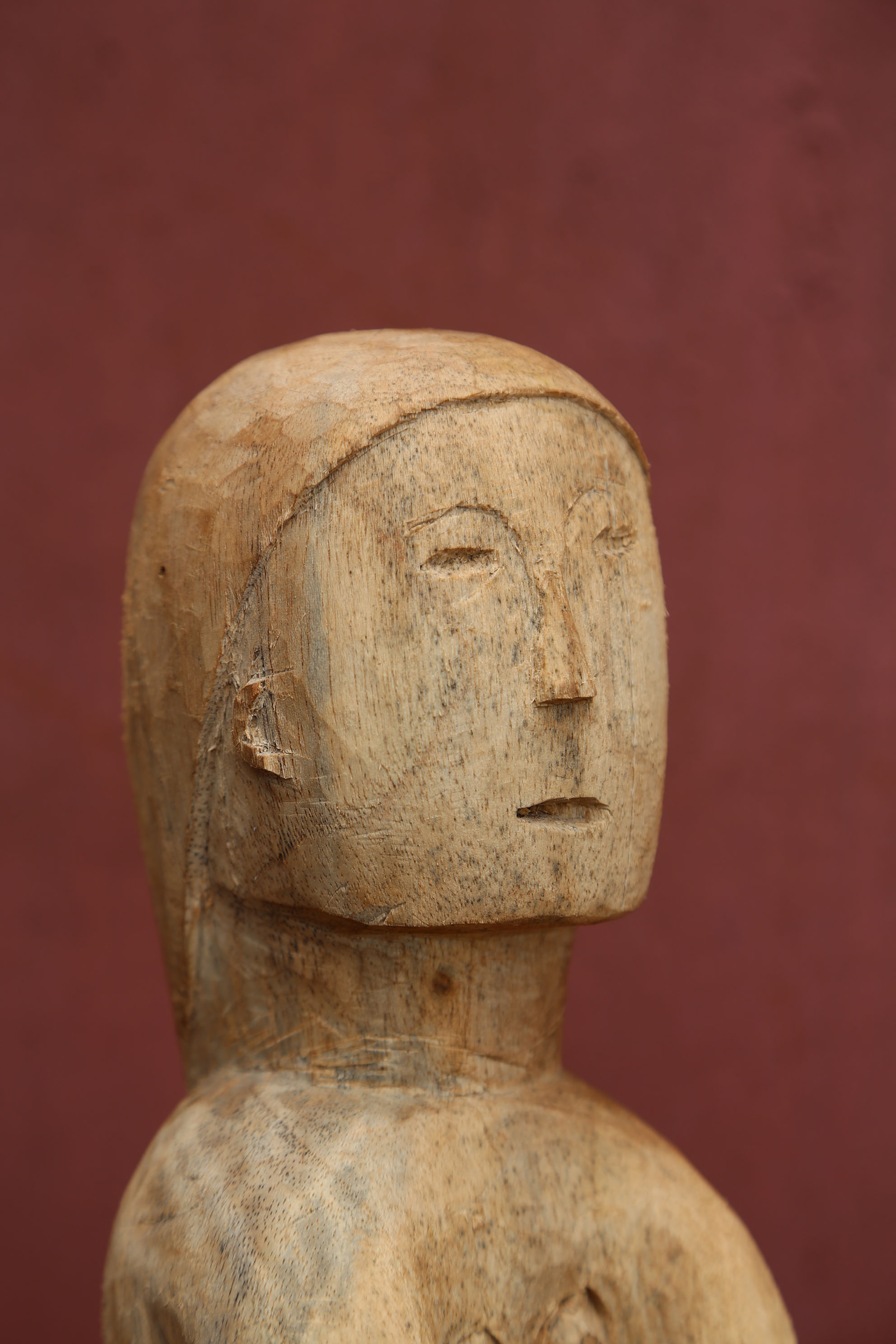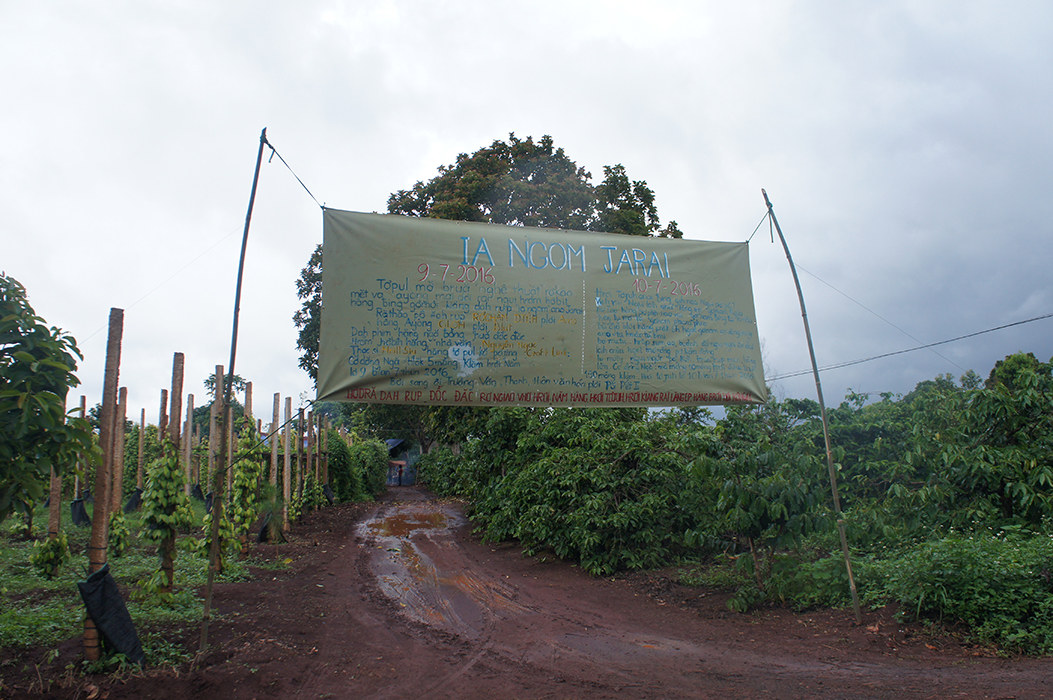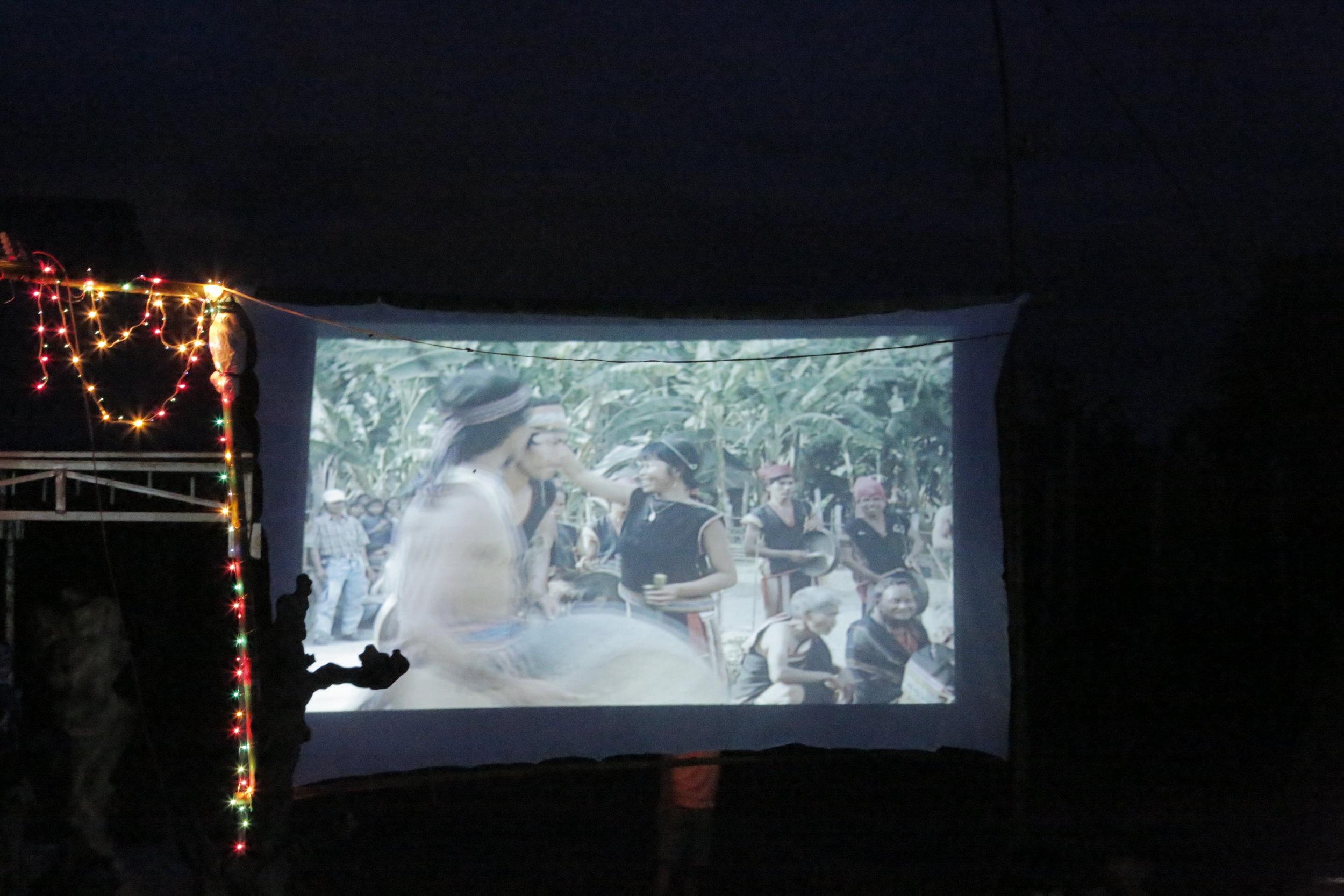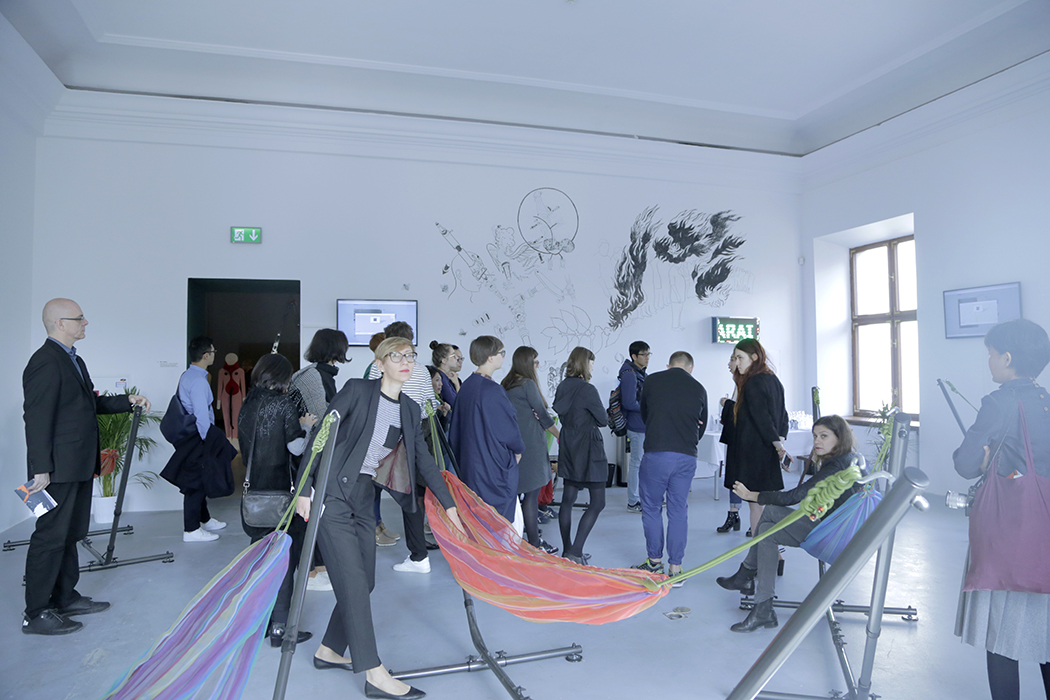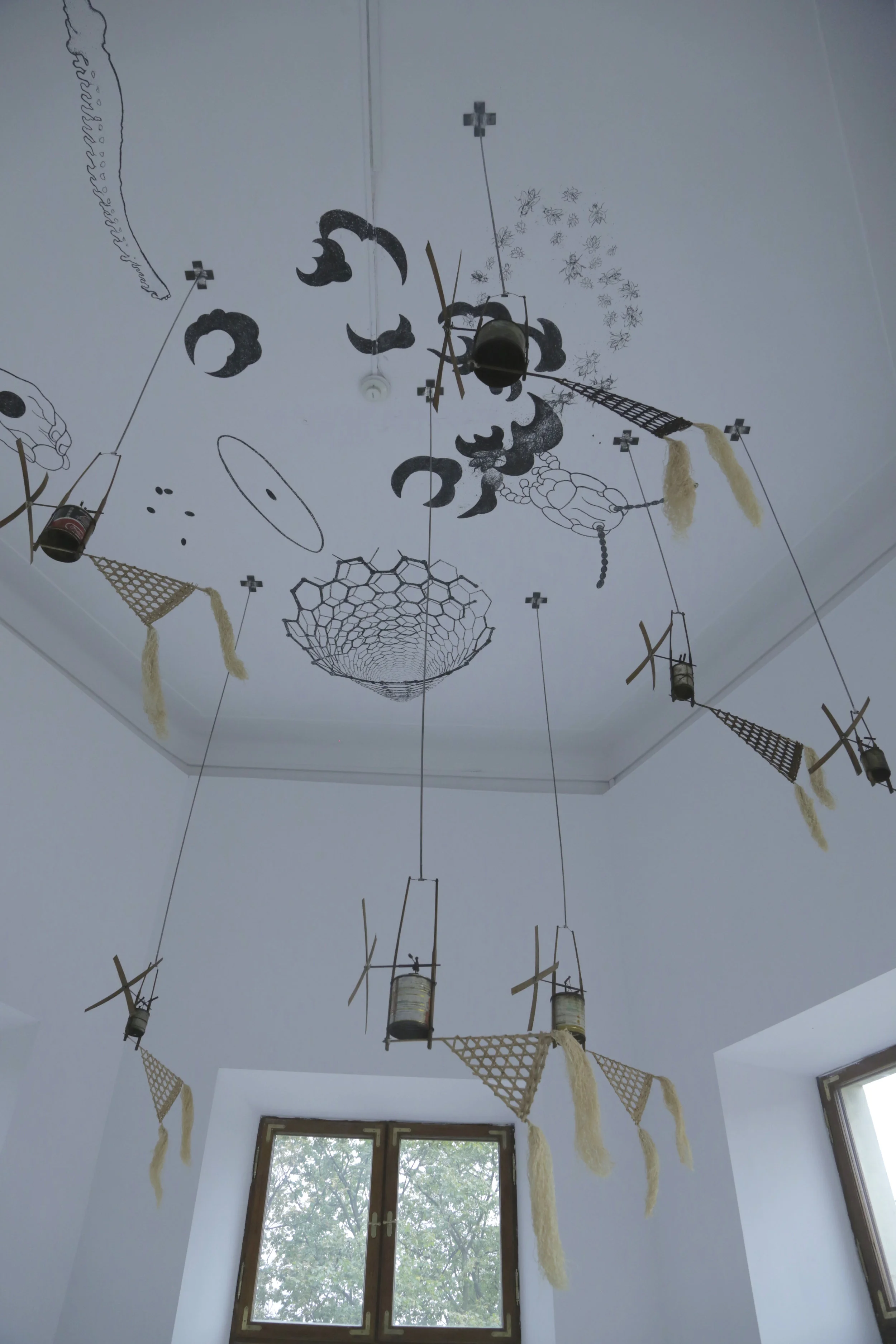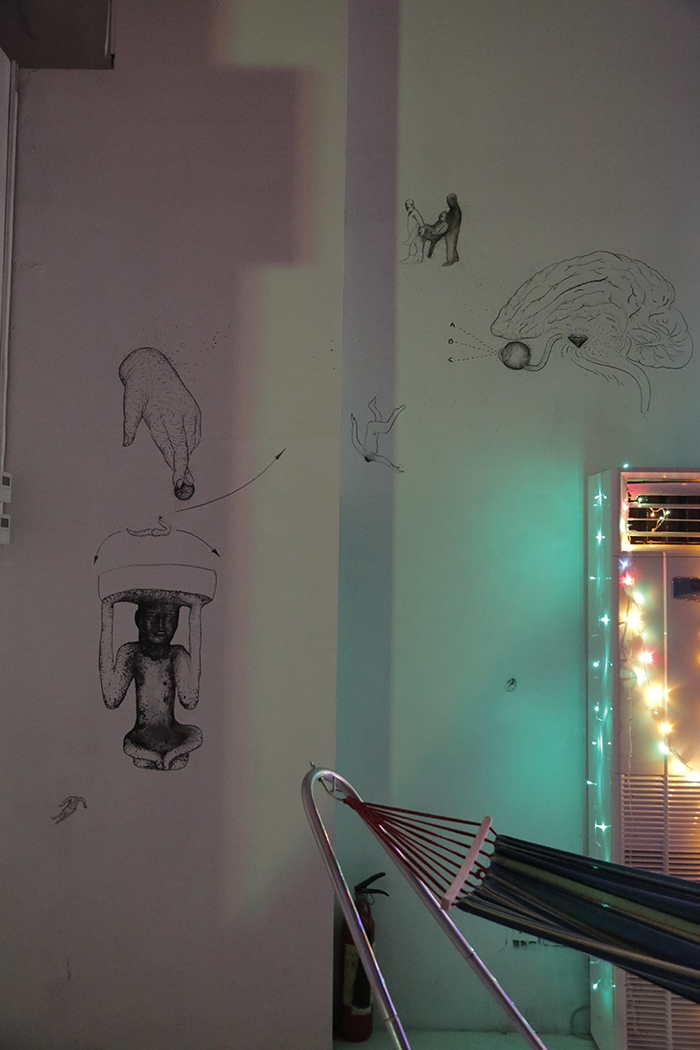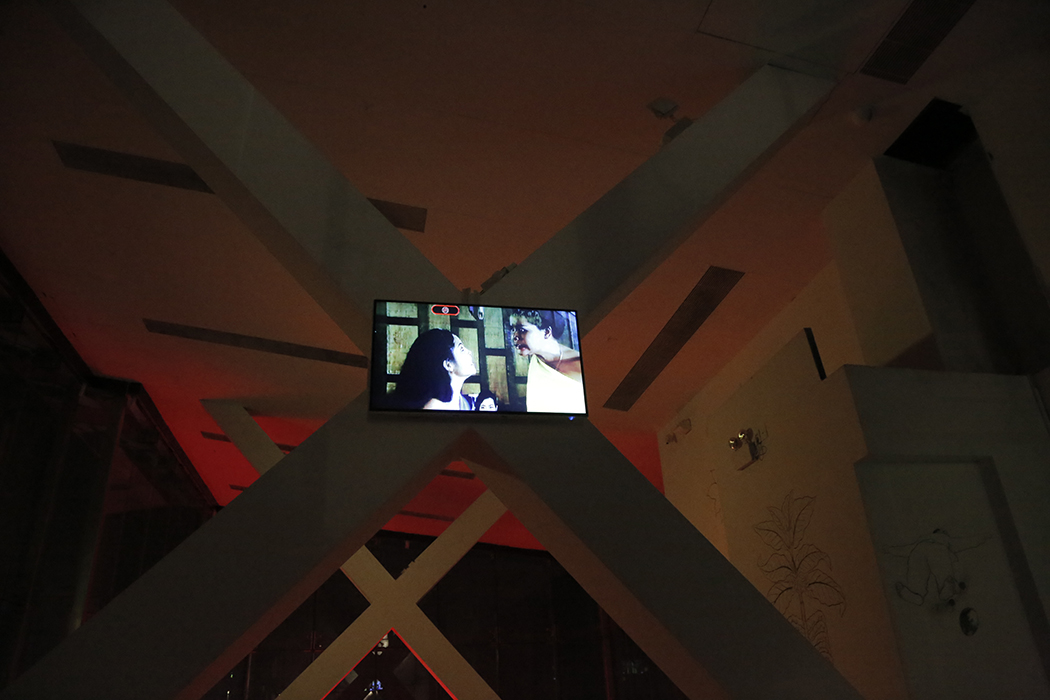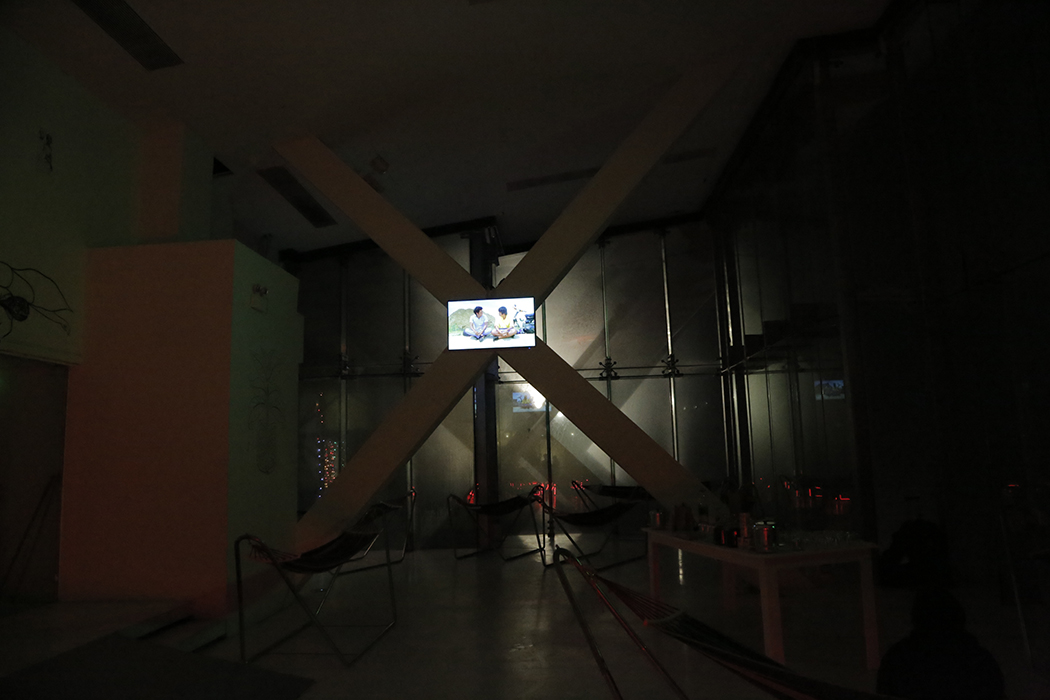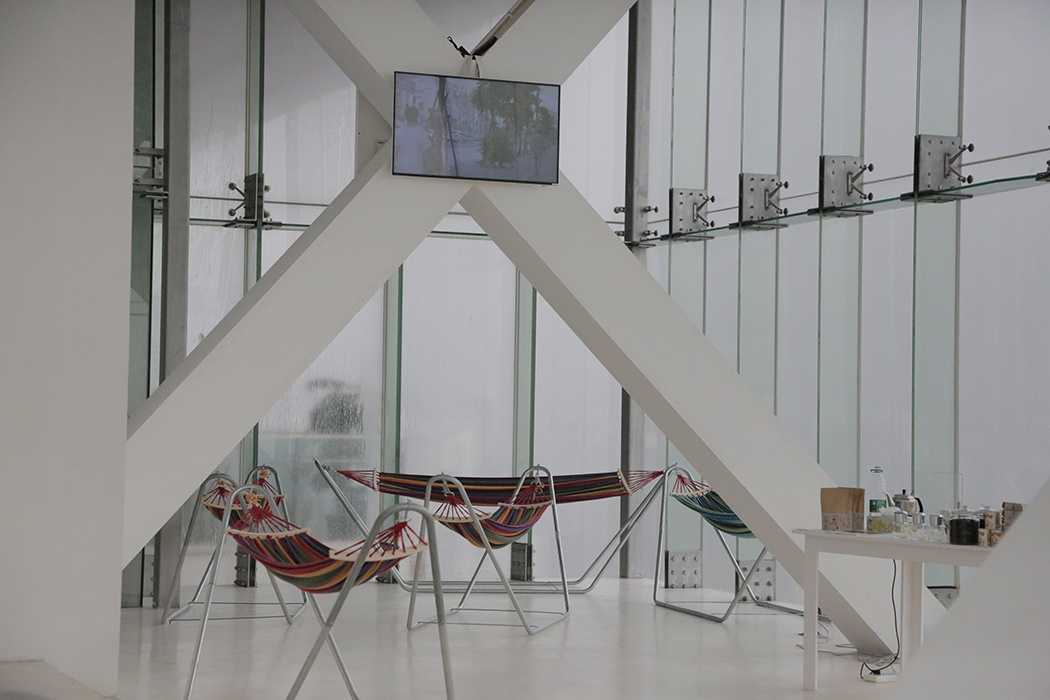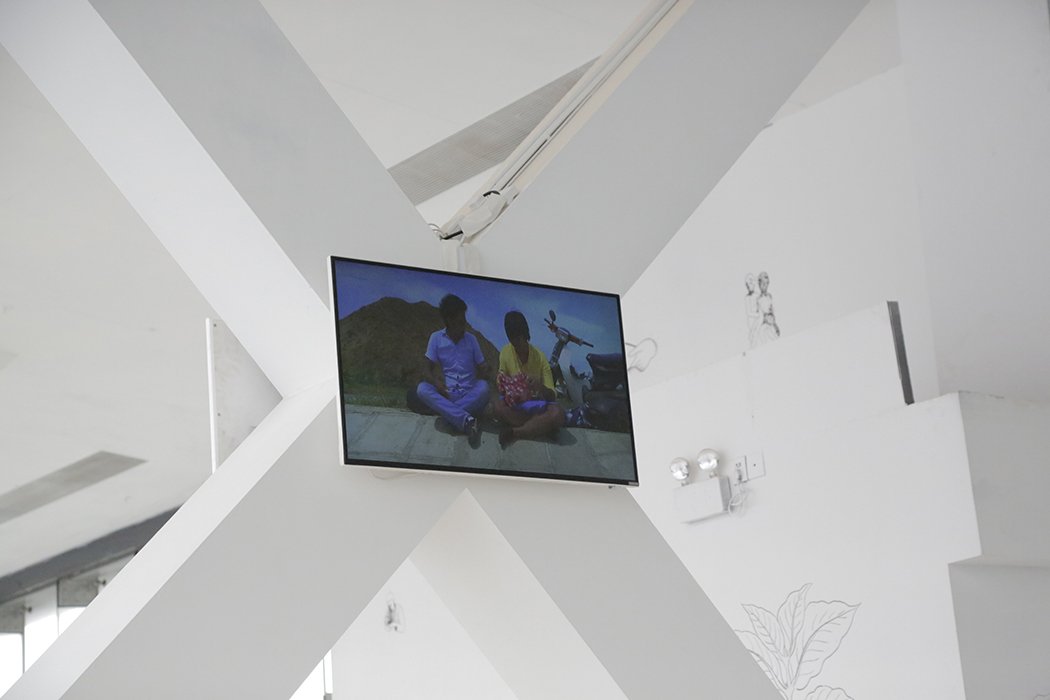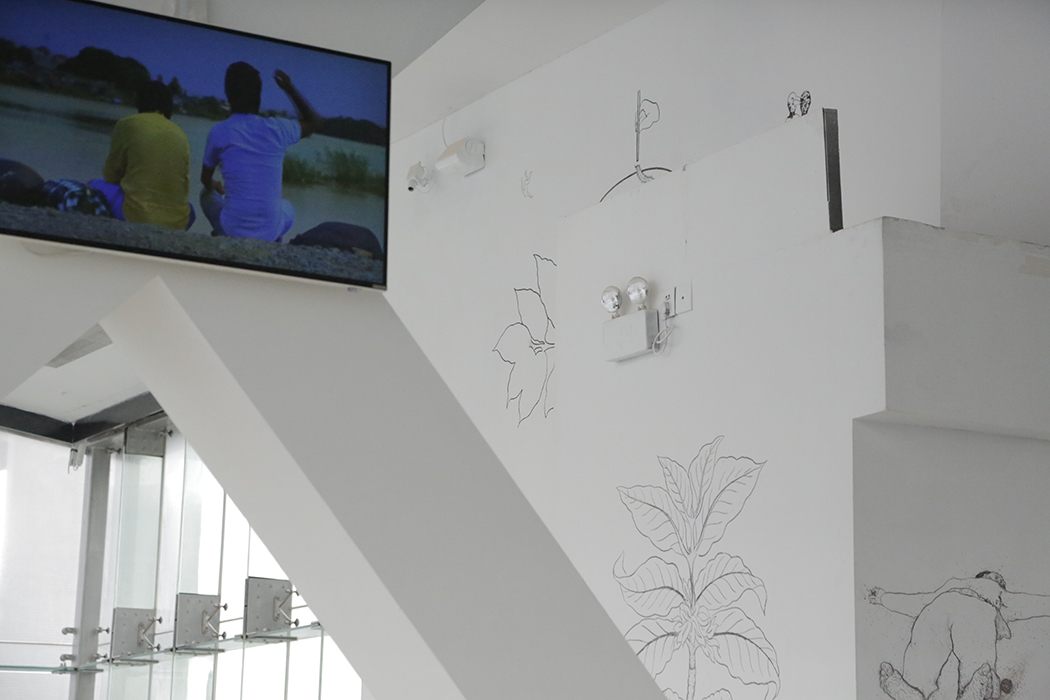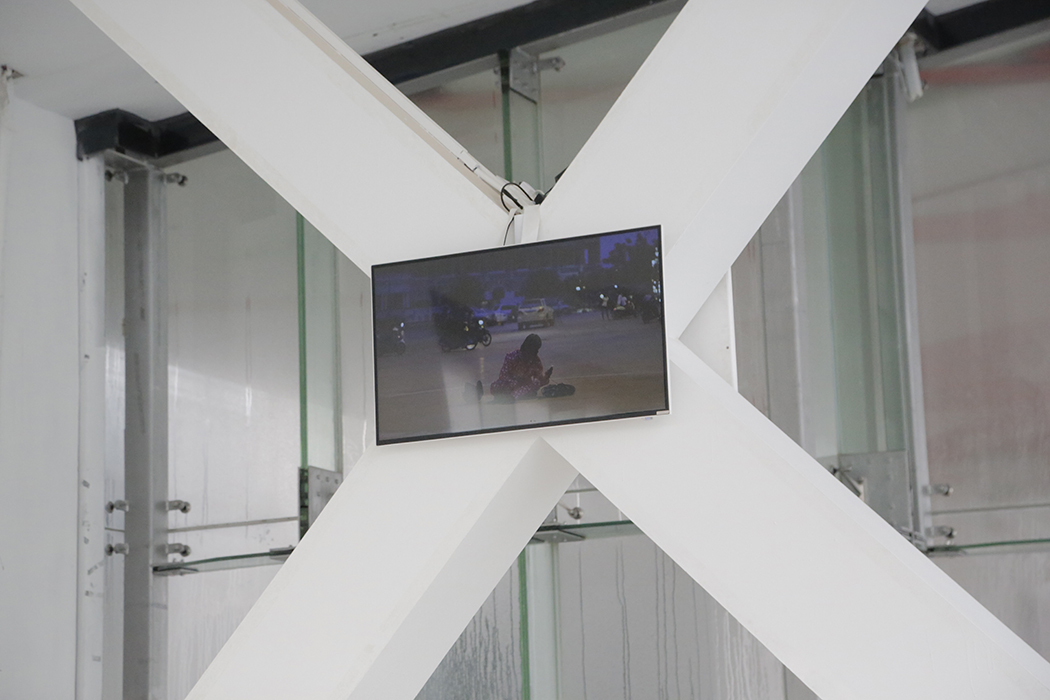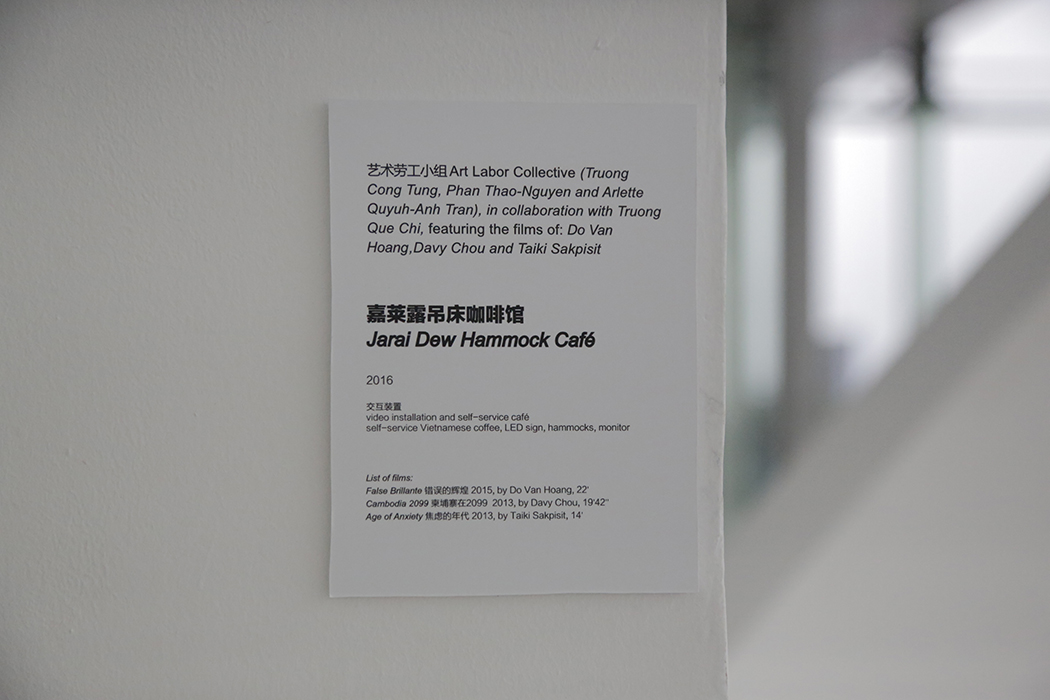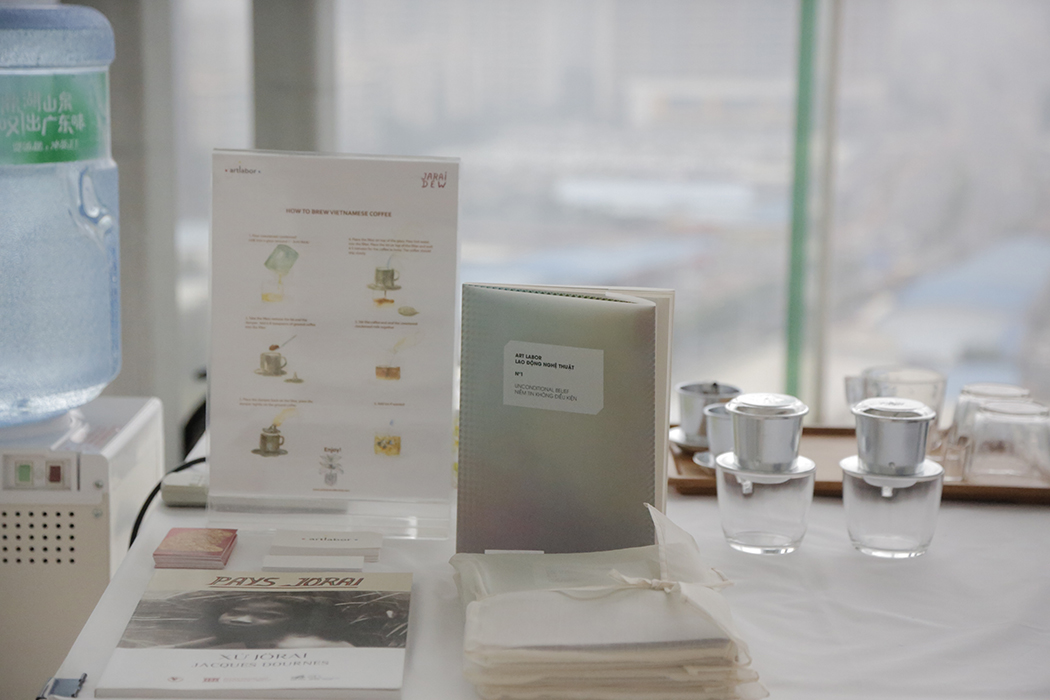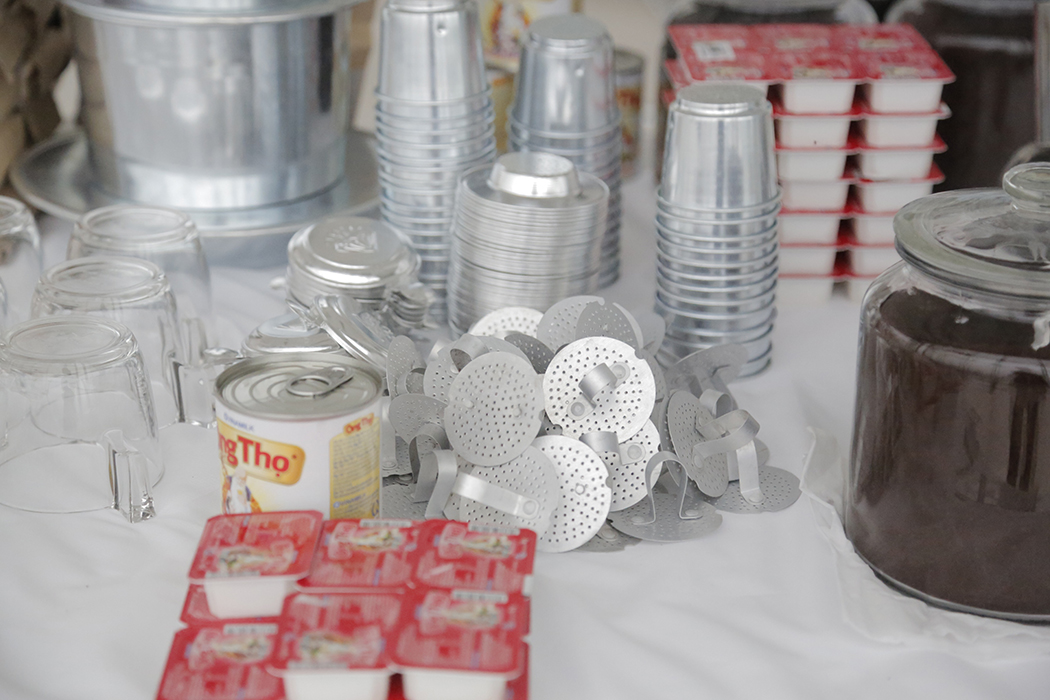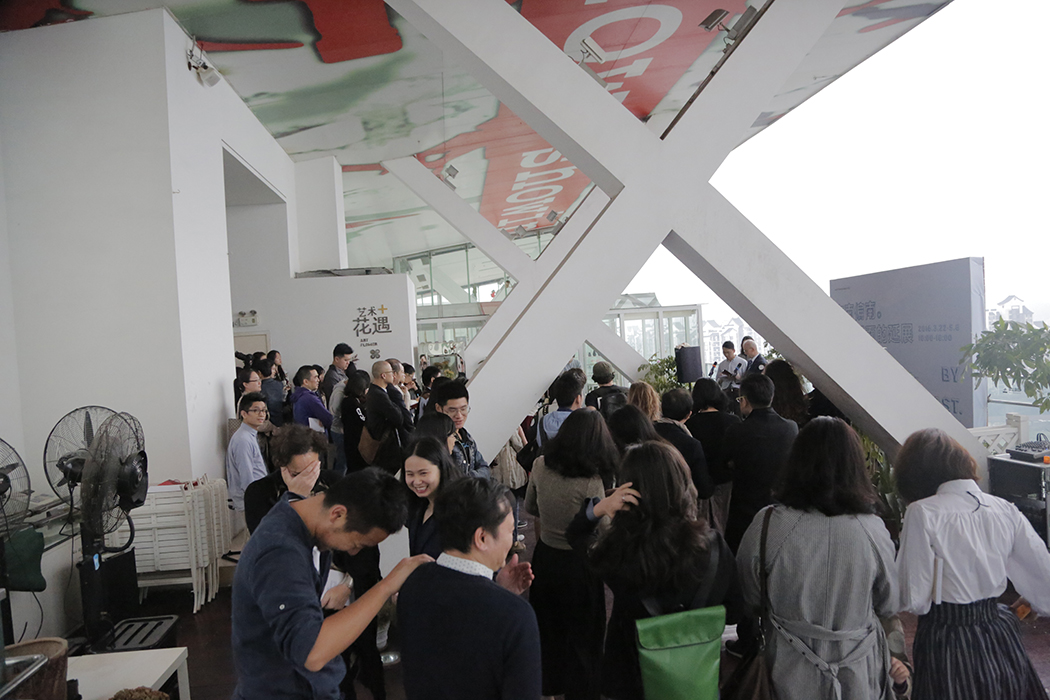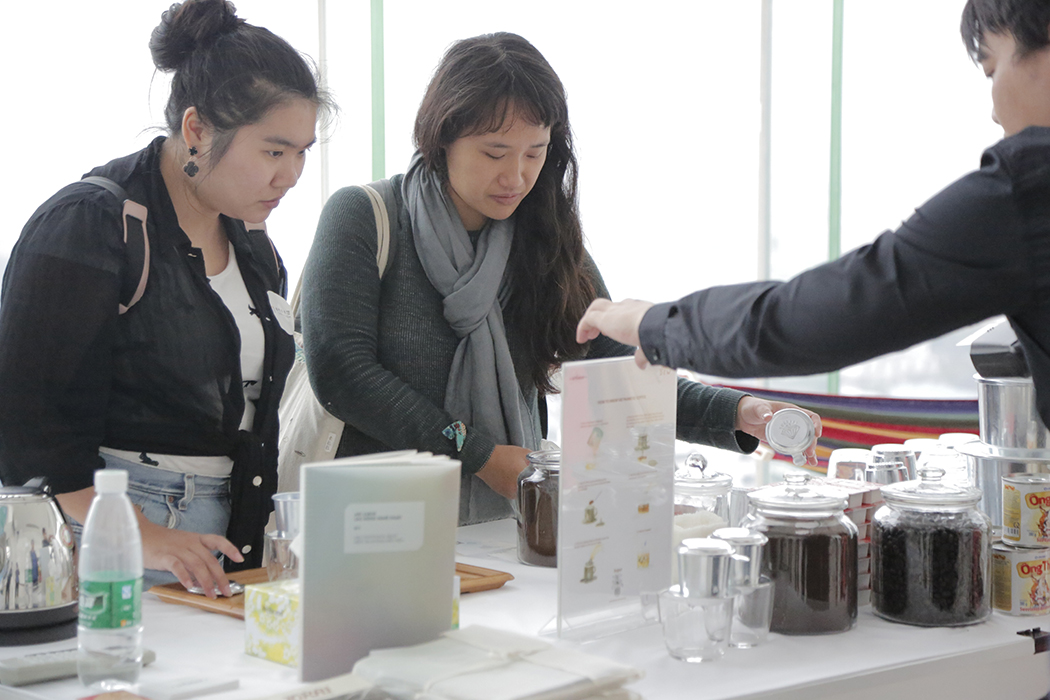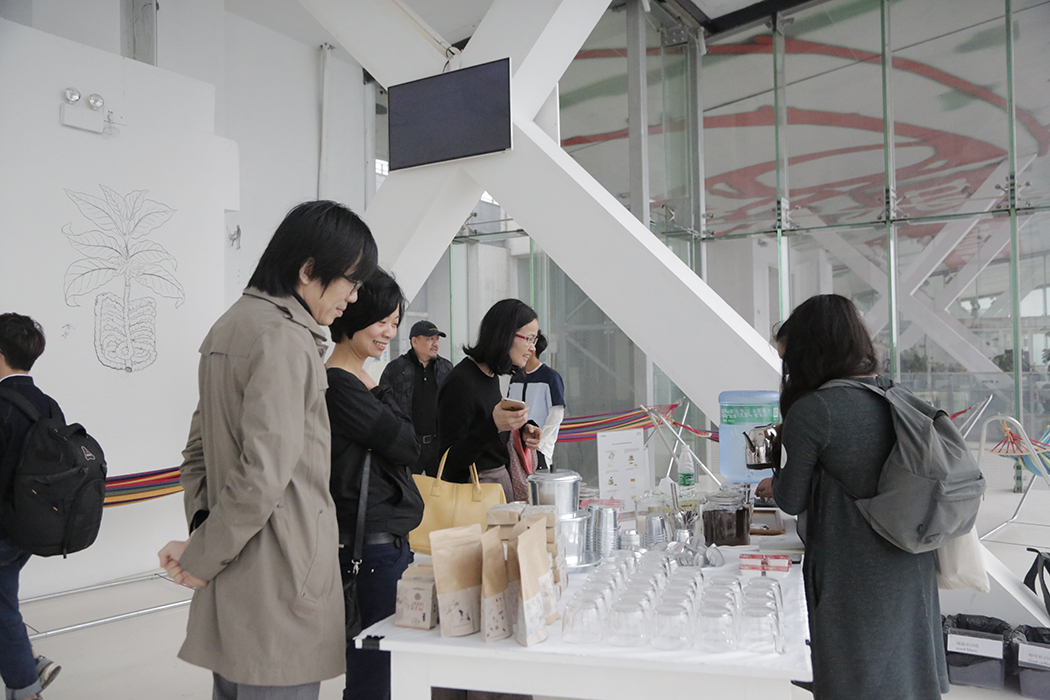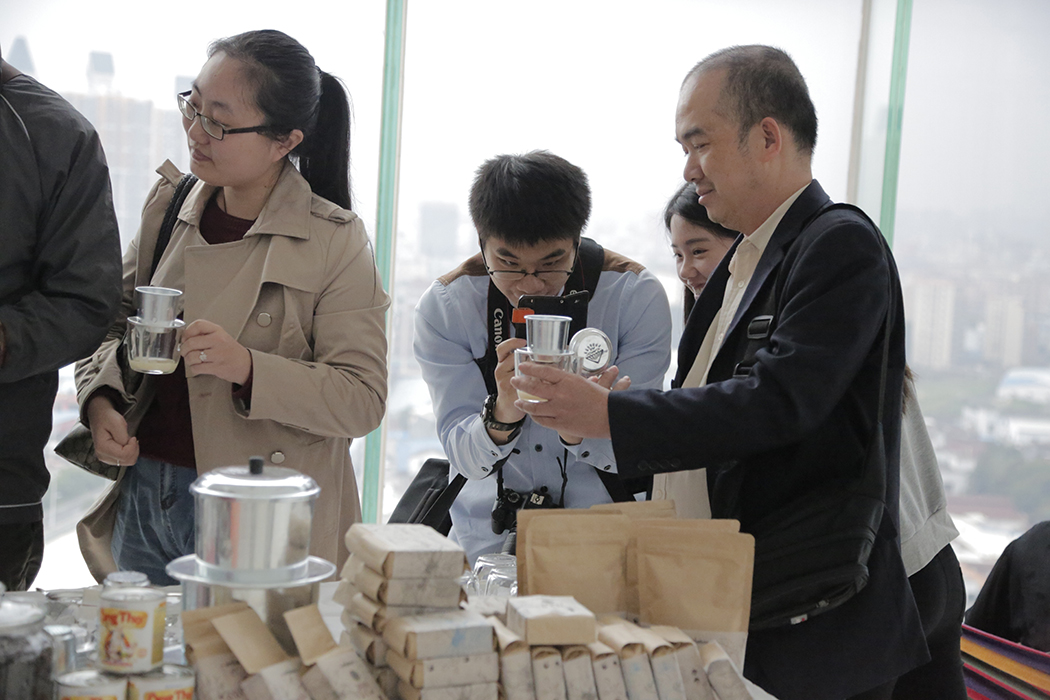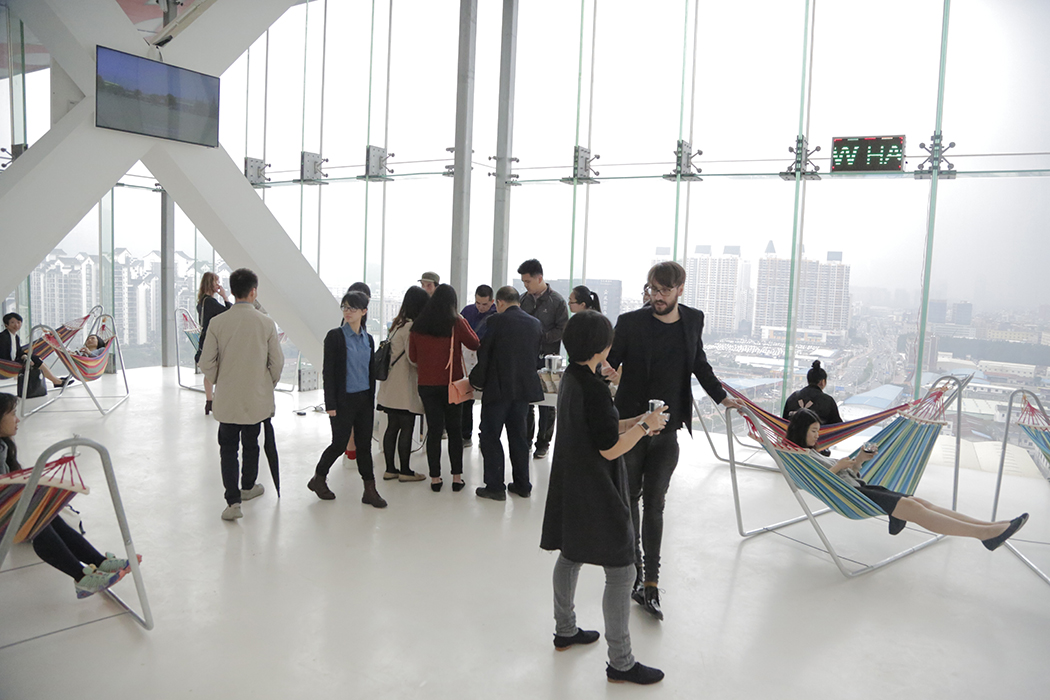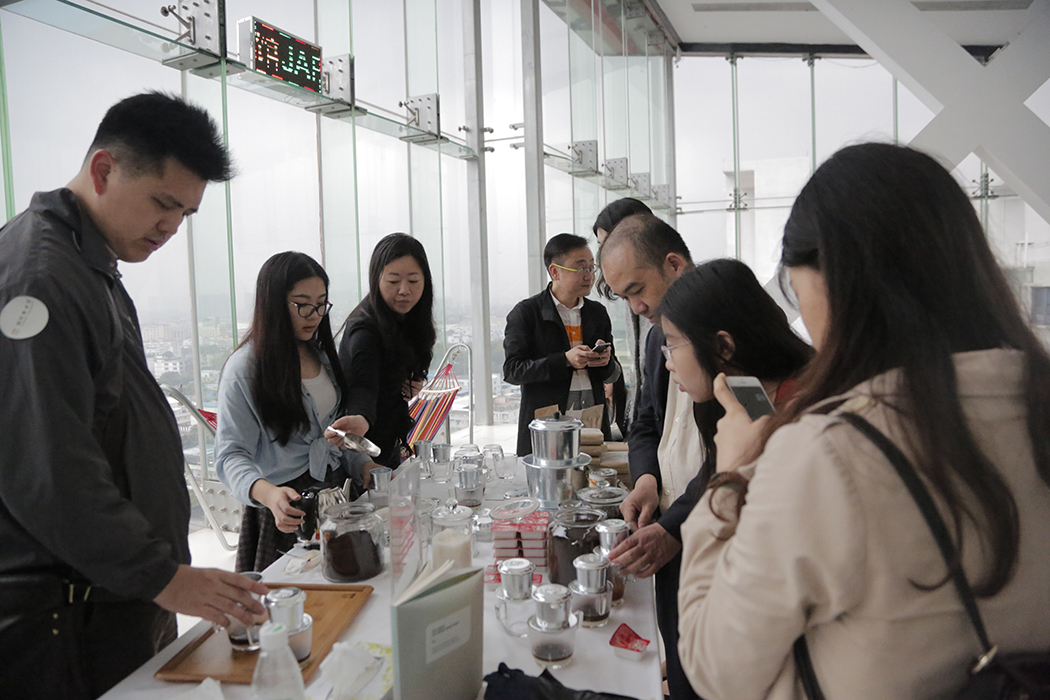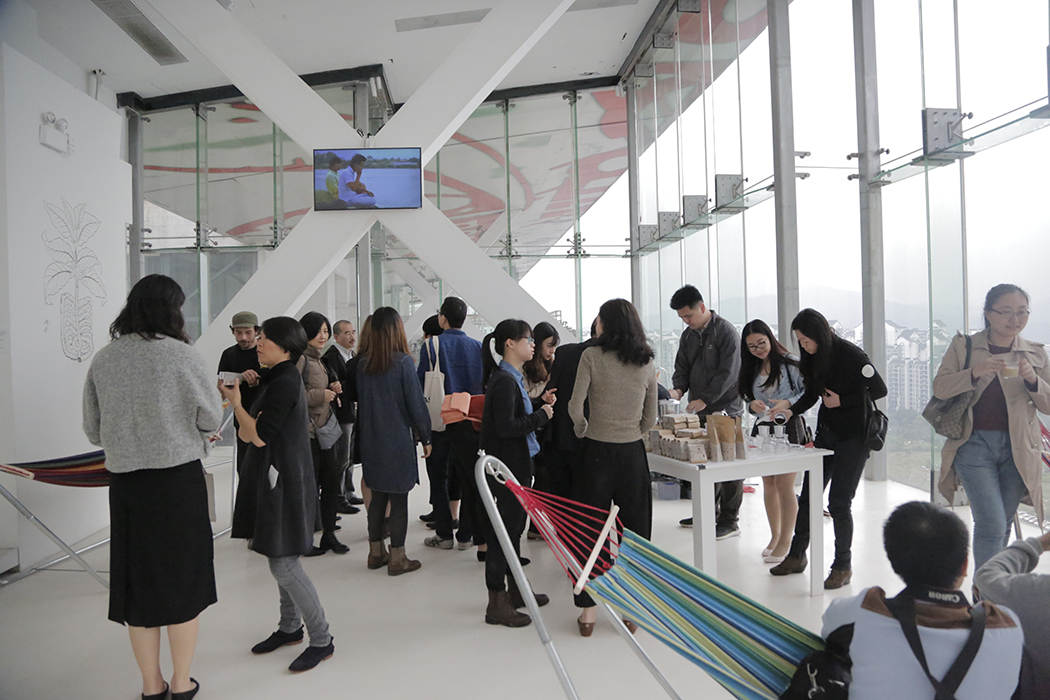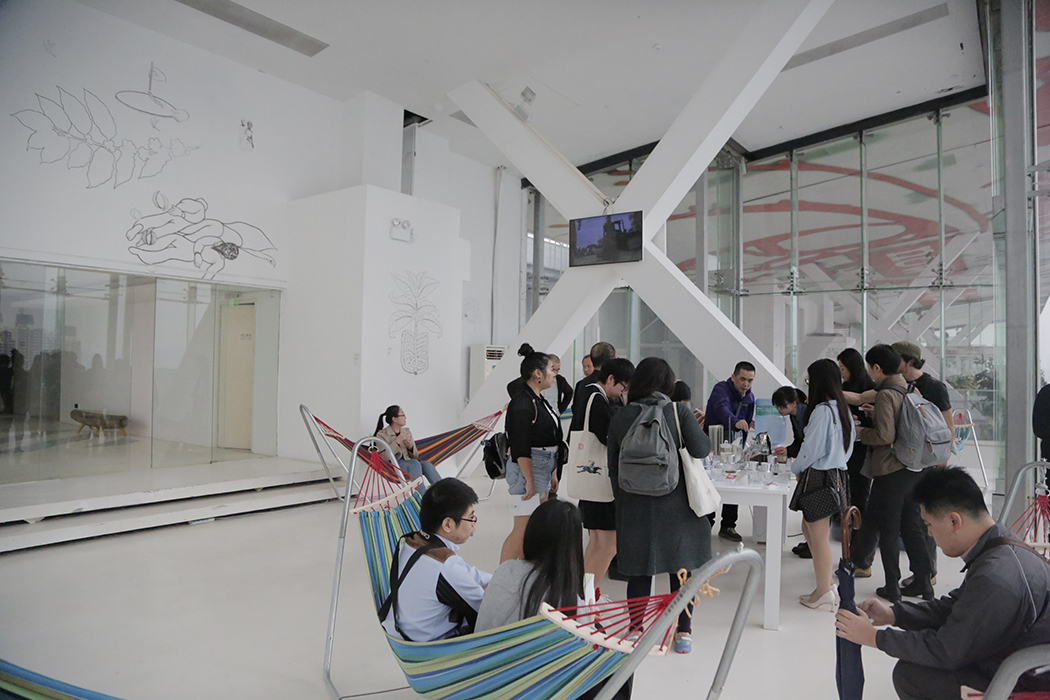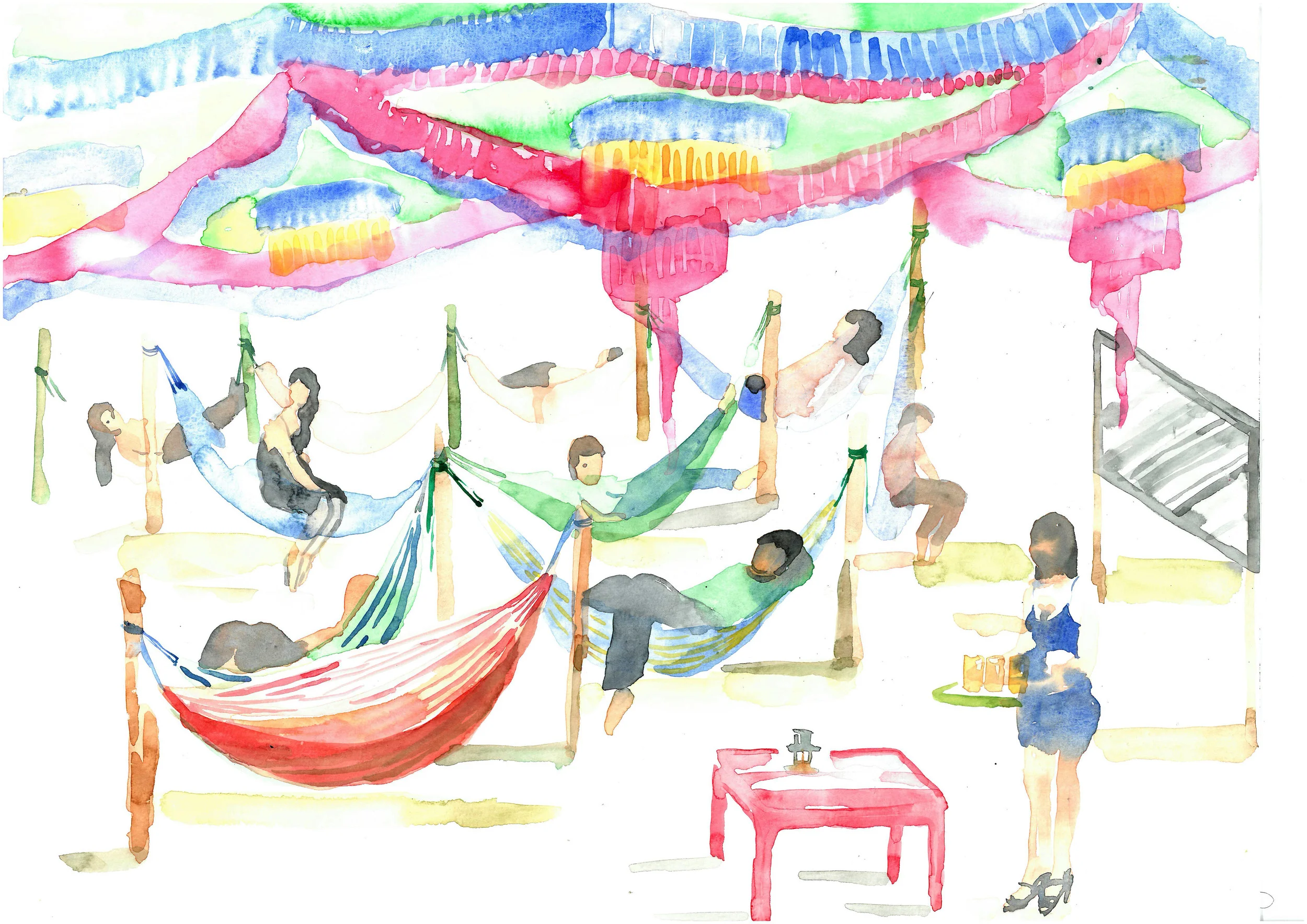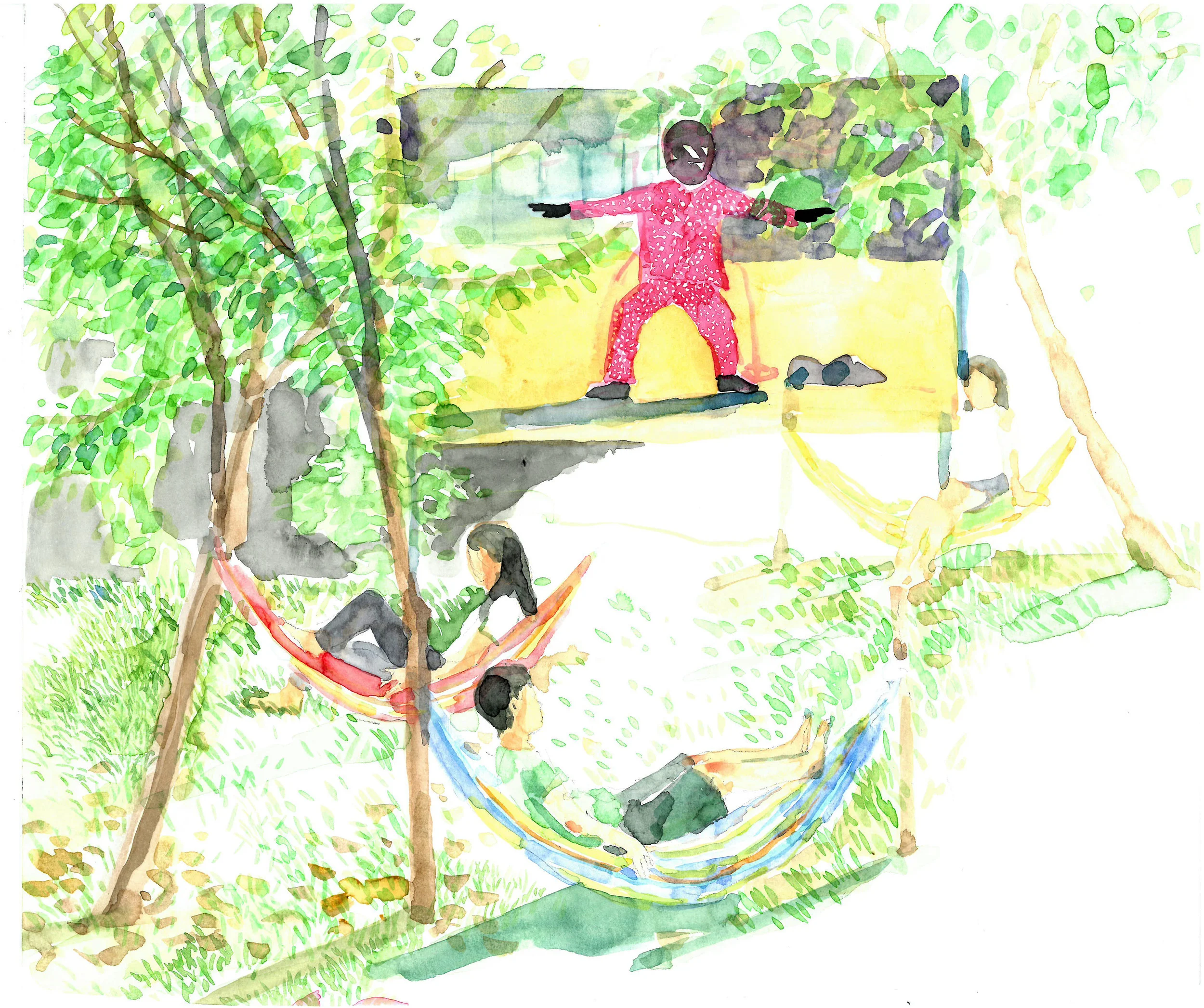The community of 400,000 Jrai people – the biggest ethnic group of the Highlanders in Vietnam– are mostly divided into small villages inhabiting amid the forests, the high mountains and also mutually with Kinh people (the dominant group of Vietnamese population) in the area of more than 15,000 km2. This is also the hometown of artist Cong Tung, member of Art Labor Collective.
The project ‘Jrai Dew’ takes inspiration from the Jarai belief in the human and the cosmos. In their philosophy of existence, after death, the human will go through many stages to go back to their existence origin. The final stage is that they will transform into dew (ia ngôm in Jrai language) evaporating to the environment – the state of non-being – the beginning particles of new existence. Using various approach to research and artwork production, With Jrai Dew, Artlabor wants to look at Jarai culture as poetic and sustainable as their concept of dew.
Jrai Dew is our on-going project. We update our process of researching here.
THE LAUNCH OF JRAI DEW PROJECT: PAPET VILLAGE, GIA LAI PROVINCE, CENTRAL HIGHLAND, VIETNAM, JULY 2016
JARAI DEW HAMMOCK CAFE AT CENTER FOR CONTEMPORARY ART, WARSAW, 22 September 2016 – 8 January 2017
“ROBUSTA, HAMMOCKS & TV CHANNELS SWITCHING
Jarai Dew hammock café is part of Art Labor’s long-term project ‘Jarai Dew’, which projects critically the cost of capitalized world through mythic narratives. It takes inspiration from Jarai belief in the human and the cosmos. In their philosophy, being human is a part of the metamorphosis cycle of the nature. After death, the journey going back to their origin ends at becoming dew (ia ngôm in Jarai language) evaporating to the environment – the state of non-being – the beginning particles of new existence. In this metaphorical context, forestland with its people is the vanishing dew, while new existence of modernization and industrialization arise. By using products and symbols that either belong to the Central Highlands of Vietnam or related to the violent changes in history, Jarai Dew leads to a scene of human chaos however in a poetic and dreamy way.
Robusta
Since 1800s French missionaries brought the first coffee plants to Vietnam, coffee gradually become a crucial part of Vietnamese drink culture and agricultural economy. Nowadays, Vietnam is ranked the second largest raw coffee exporters, especially for Robusta coffee – the low-grade type in comparison to Arabica blend. Robusta is bitter, high amount of caffeine, and provides strong, intense and bold taste with awakening aroma. Vietnamese people drink coffee through metal filter and mixed it with condensed milk – a fusion style between French and the local favor for sweetness and bitterness, or the lack diary processing industry according to another information source.
The coffee served at Jarai Dew hammock café is made of 100% Robusta – an unusual way of making coffee. These coffees are planted at Art Labor member’s small family-run farm and grown by Jarai farmers in Gia Lai province, Central Highlands of Vietnam. For hundreds years, Jarai people have been living the Highlands with rich culture. However since the authority policies of industrialization and modernization, the coffee plants have led to mass deforestation thus rapidly changed the lifestyle and culture of local Jarai community. Due to many conflicting reasons, these policies have not succeeded in making their life better but turned the Jarai locals into wage labor in their homeland.
Hammock
Hammock is the common household appliance in Vietnam, on which people sit, sleep and rest at home and in outside spaces comfortably. It was also widely used by communist soldiers during the Vietnam War when they traveled from north to south through jungles and mountains. At the hammock café ‘Jarai Dew’ – the resting station commonly found on the highways between provinces as part of Vietnamese transportation culture, where drinks are served for guests not sitting on chairs but on hammocks. The hammock swinging movement resembles to constant rhythm of the body during long-hour transportation, creates a simultaneous standstill yet in motion state.
TV channels switching
Intrigued by the hammock café in Vietnam in which passersby can relax on hammocks while switching channels to watch wuxia film, music videos, soft porn, sport and melodrama from TV monitors hanging around, Art Labor invites curators and artists of ‘Public Spirits’ to select films for our screening. The films are seemingly meditative but critical and reflective of society, from the perspective of filmmakers in many regions.
”
JARAI DEW HAMMOCK CAFE AT TIMES MUSEUM
JARAI DEW HAMMOCK CAFE at NTU CCA residency, 1-13 Dec, 2015
For one night in the park outside of NTU CCA, Art Labor invite you to meditate at the hammock café ‘Jarai Dew’ – the resting station commonly found on the highways between provinces as part of Vietnamese transportation culture. You will enjoy coffee freshly roasted from the collective member’s hometown farm in Gia Lai, Central Highlands, and participate in various activities: reading, listening, watching… The hammock swinging movement resembles to constant rhythm of the body during long-hour transportation, creates a simultaneous standstill yet in motion state. Jarai Dew Café is an introduction of Art Labor’s long-term project ‘Jarai Dew’ taking inspiration from Jarai belief in the human and the cosmos. In their philosophy, after death, the final stage of the journey back to their origin is transforming into dew (ia ngôm in Jarai language) evaporating to the environment – the state of non-being – the beginning particles of new existence.
8 DecemberDecember, 6pm - 10pm
at NTU CCA Singapore studios, block 38 Malan Road, Singapore
http://ntu.ccasingapore.org/residencies/art-labor/
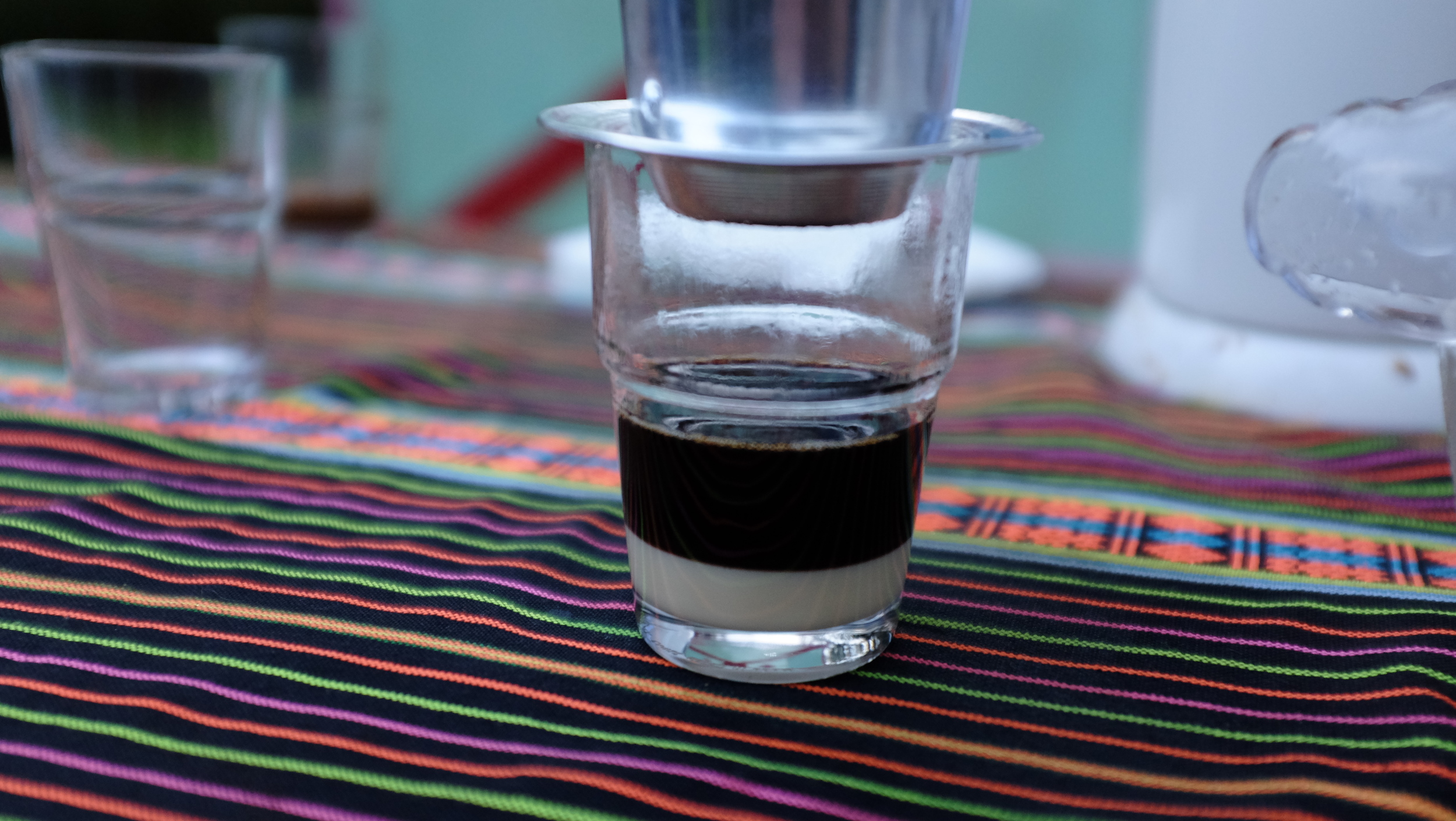
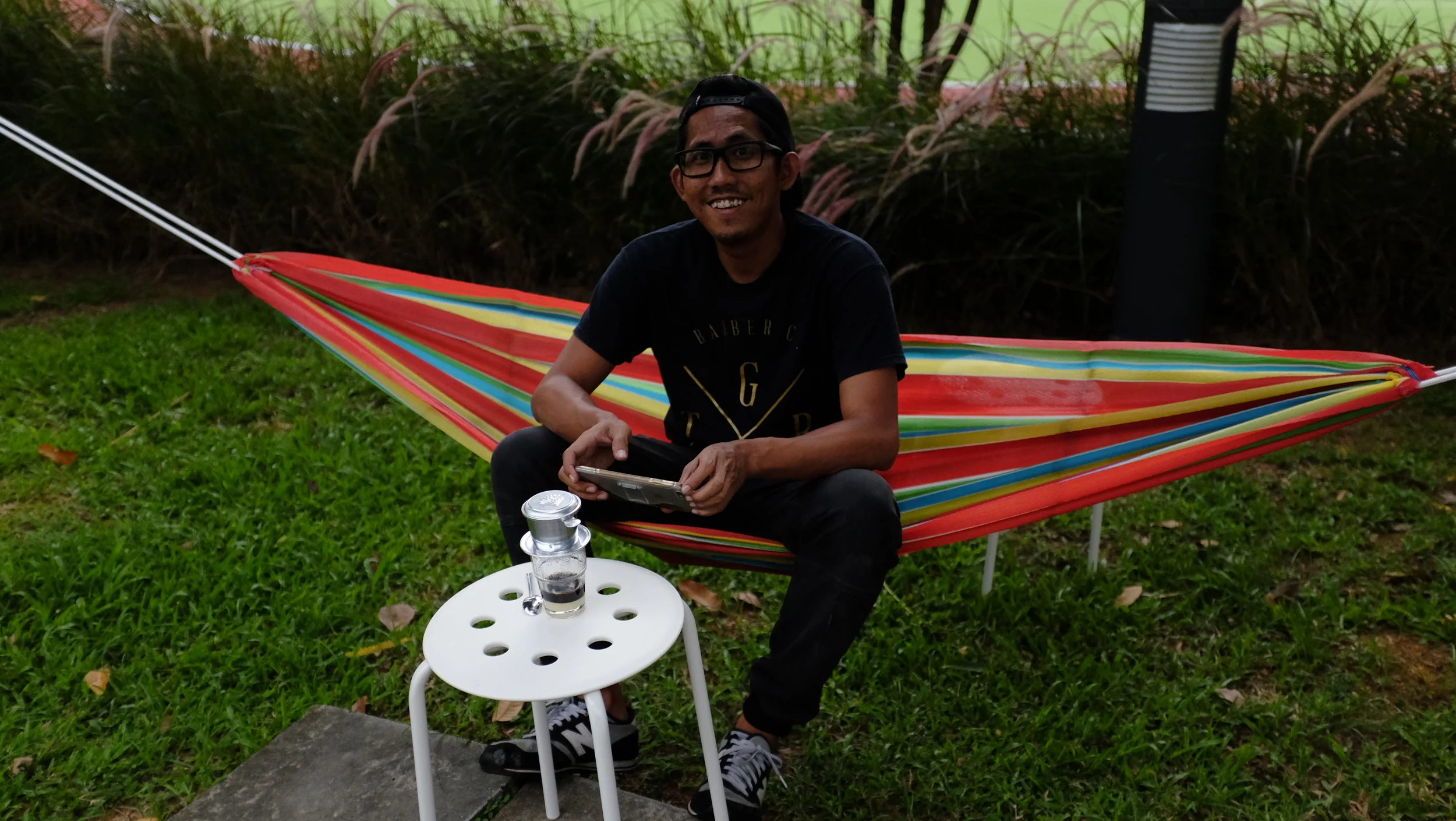
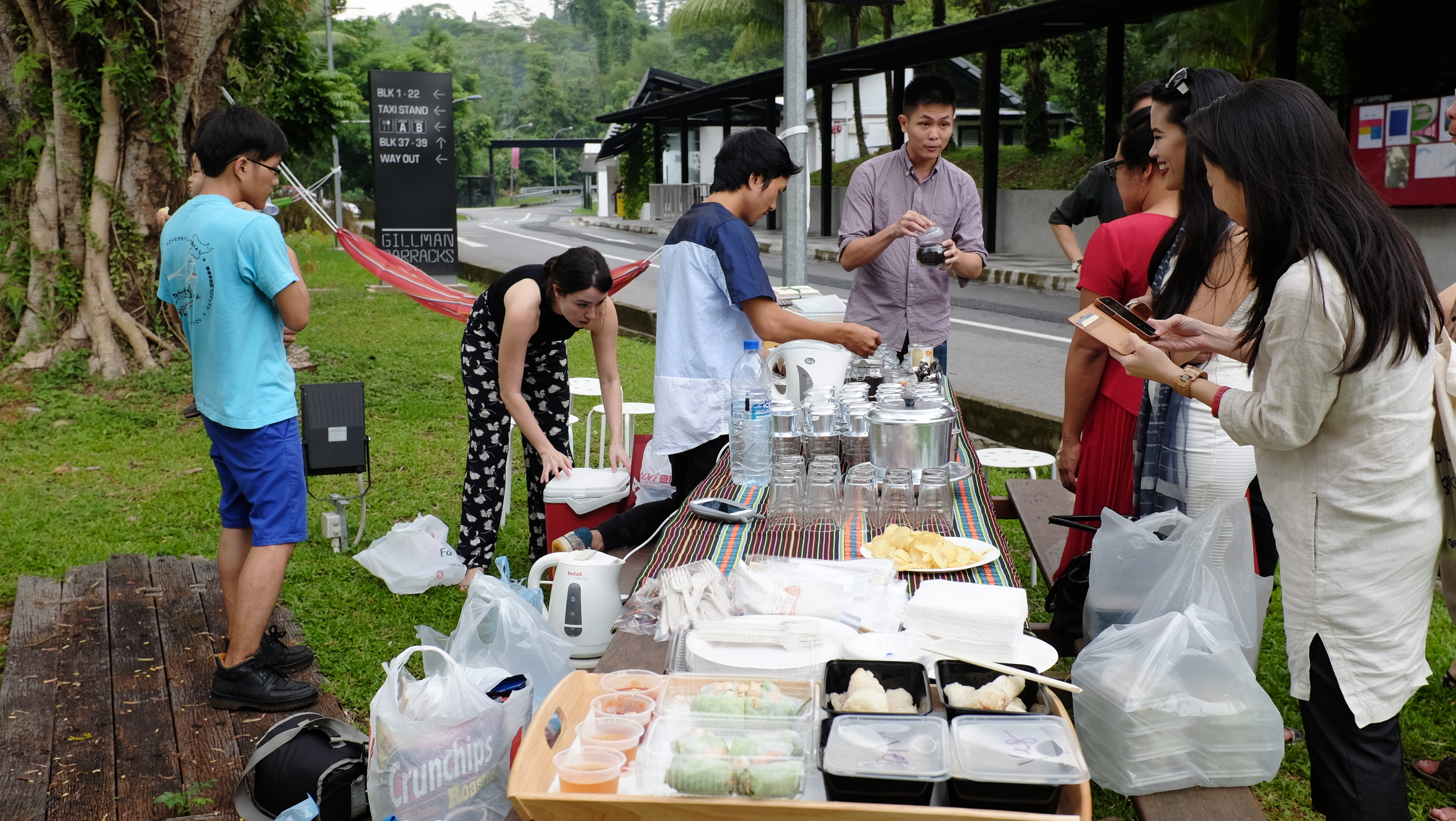
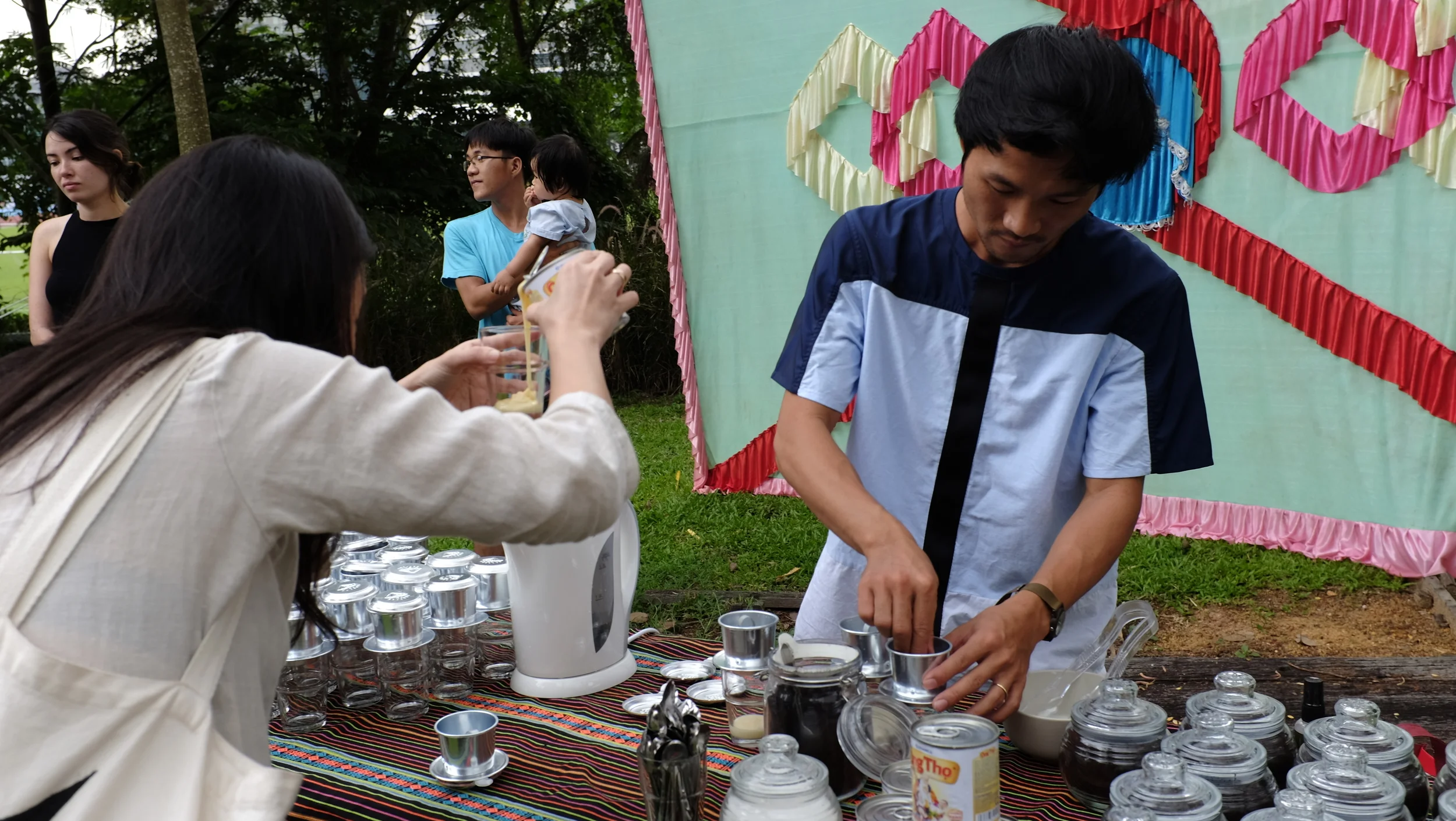
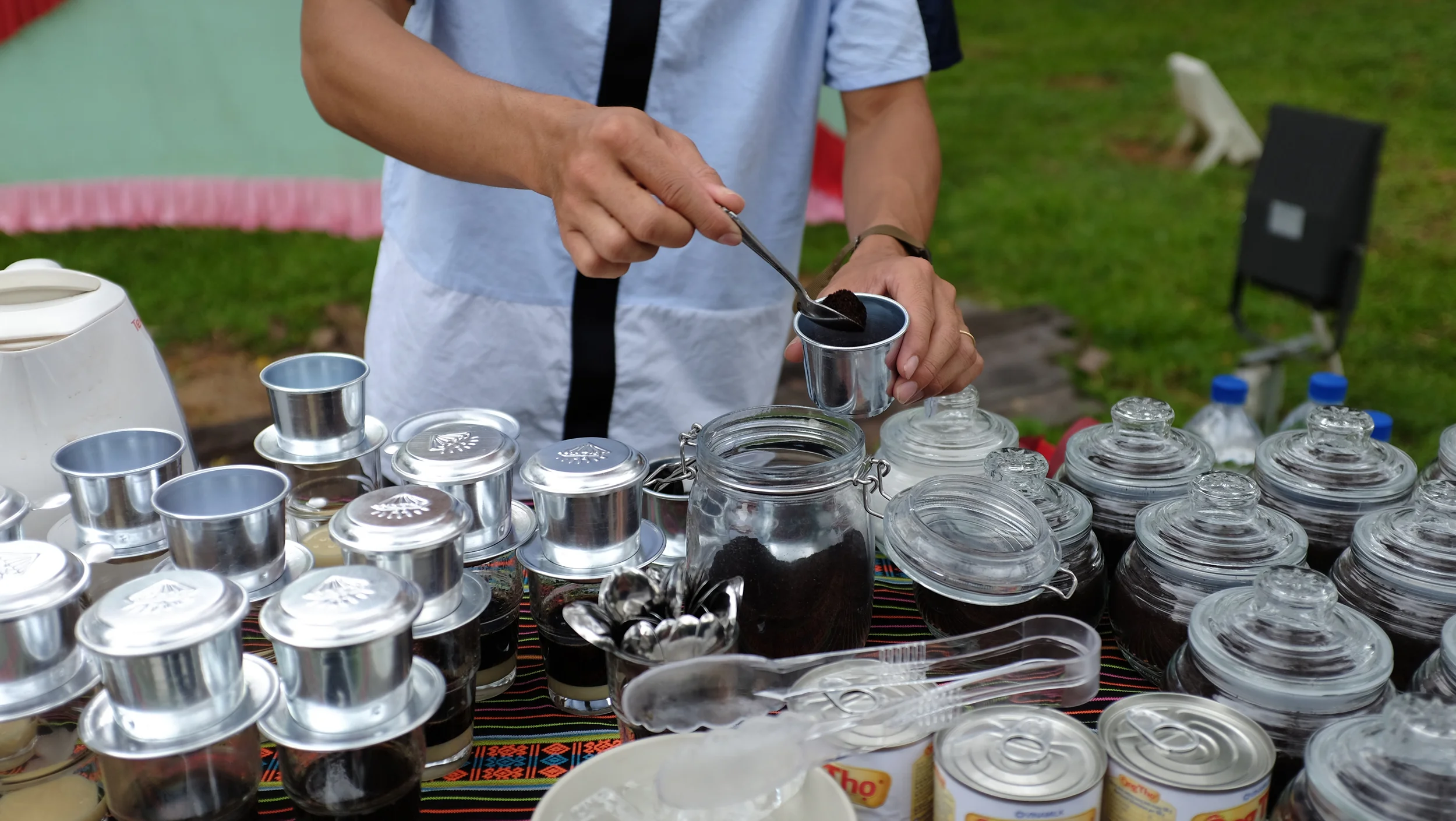
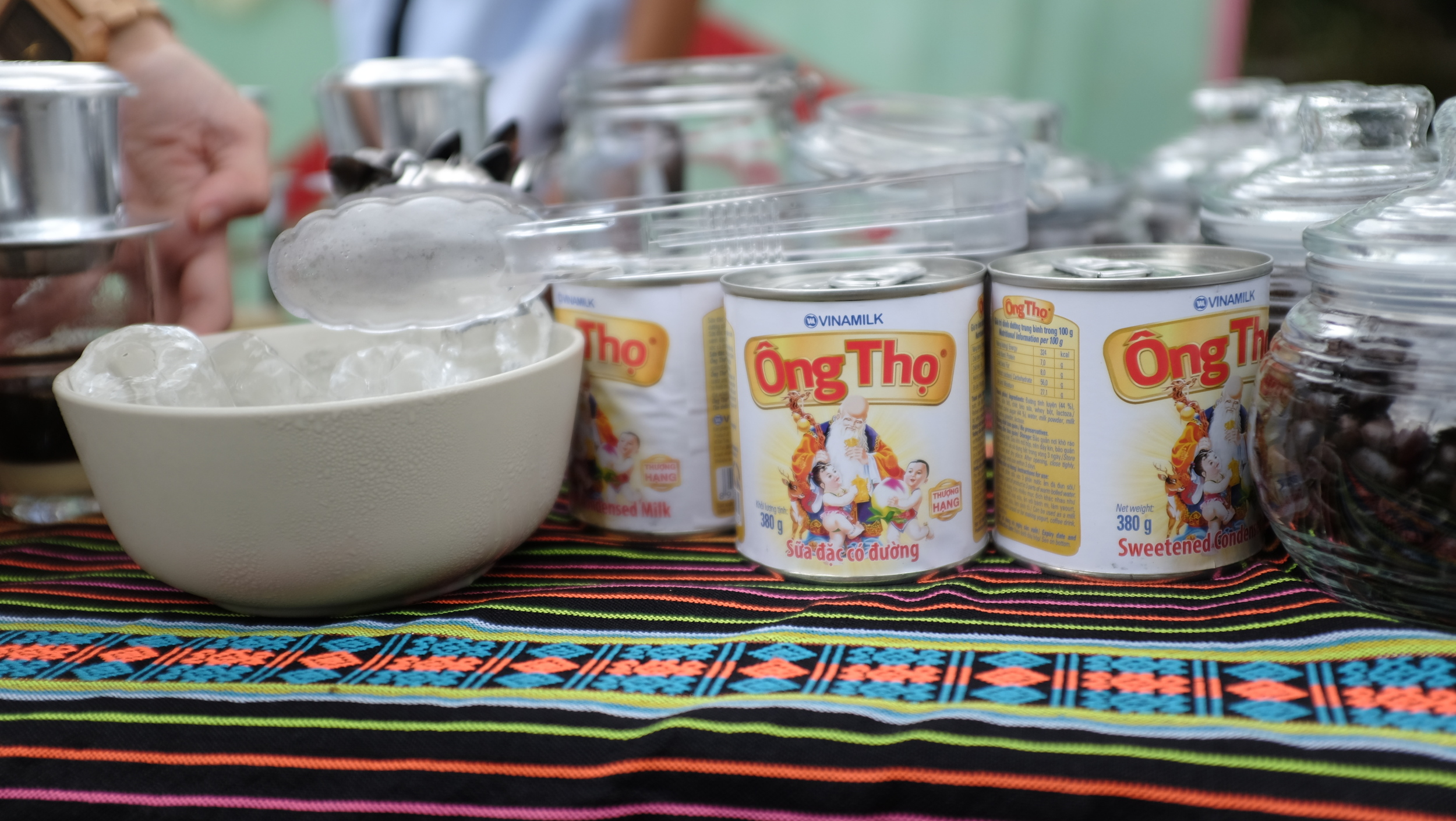
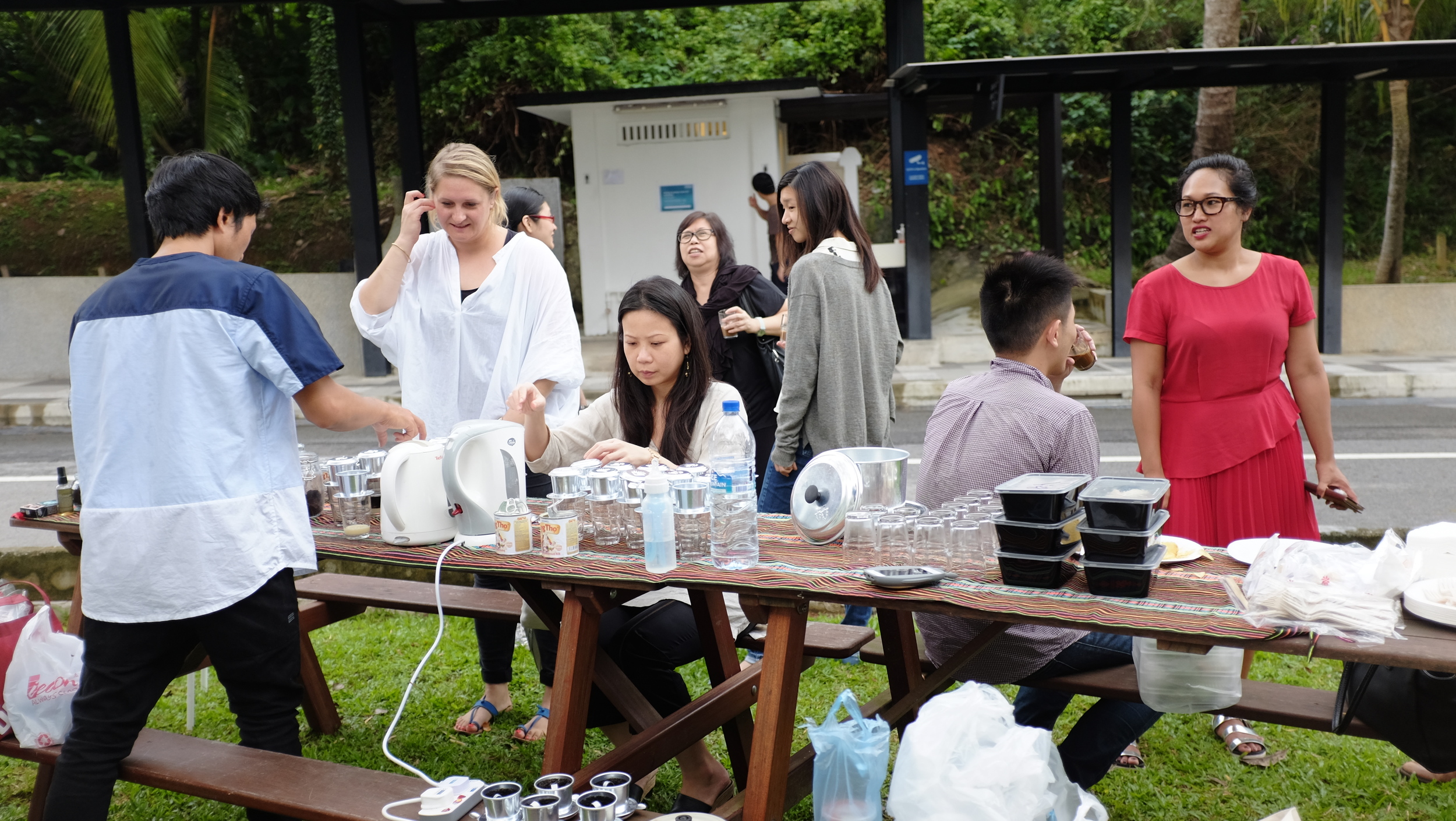
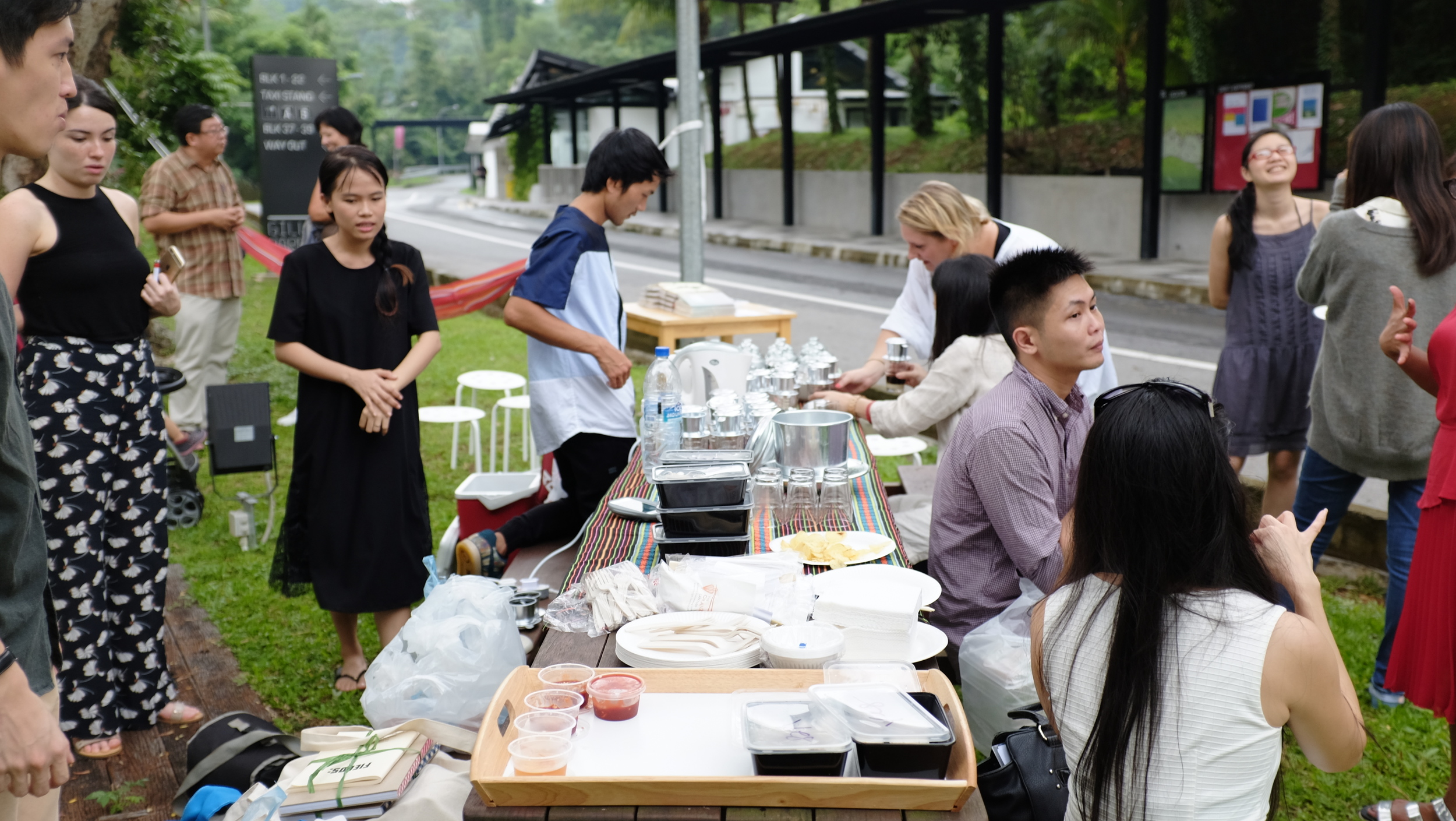
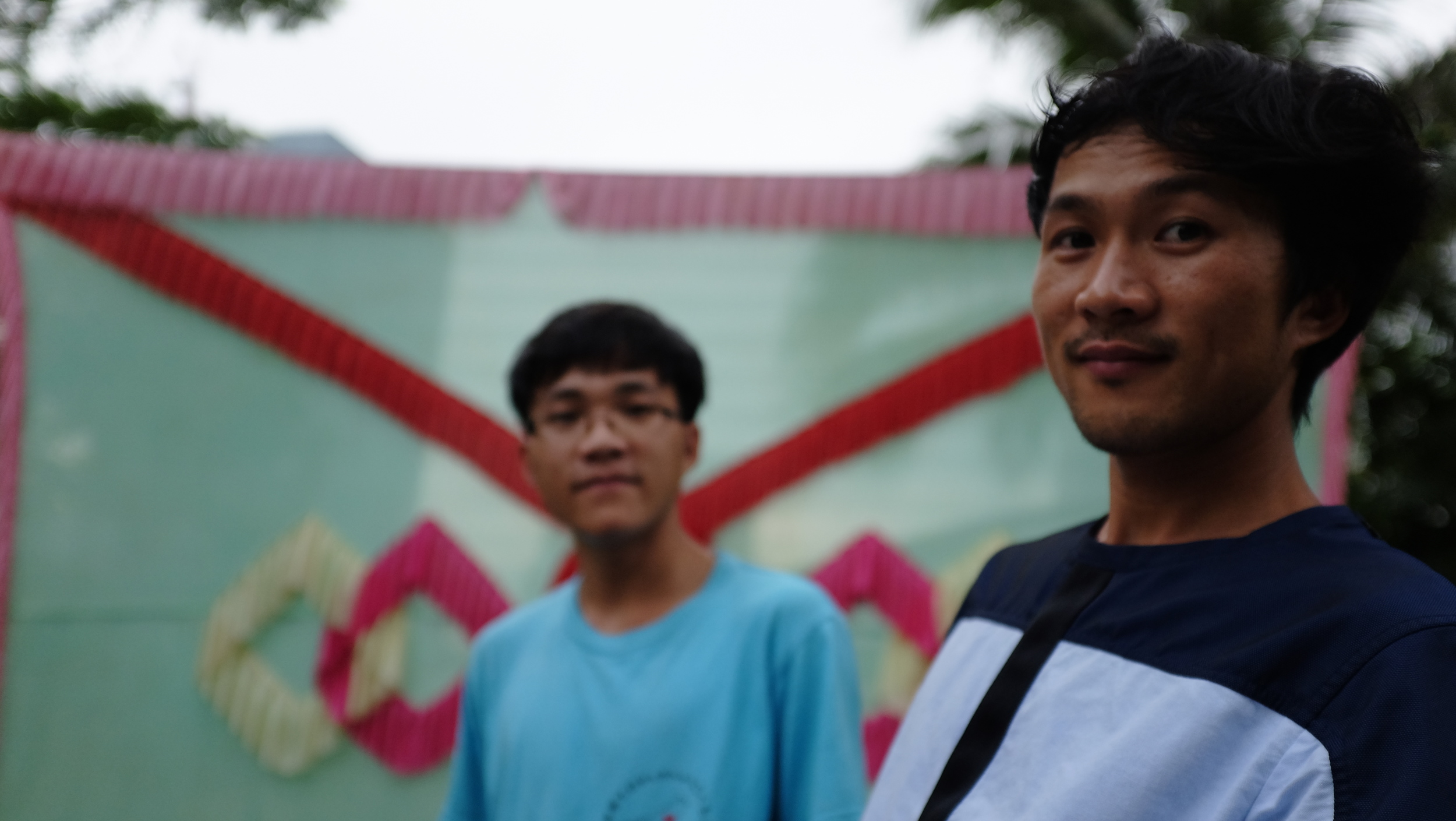
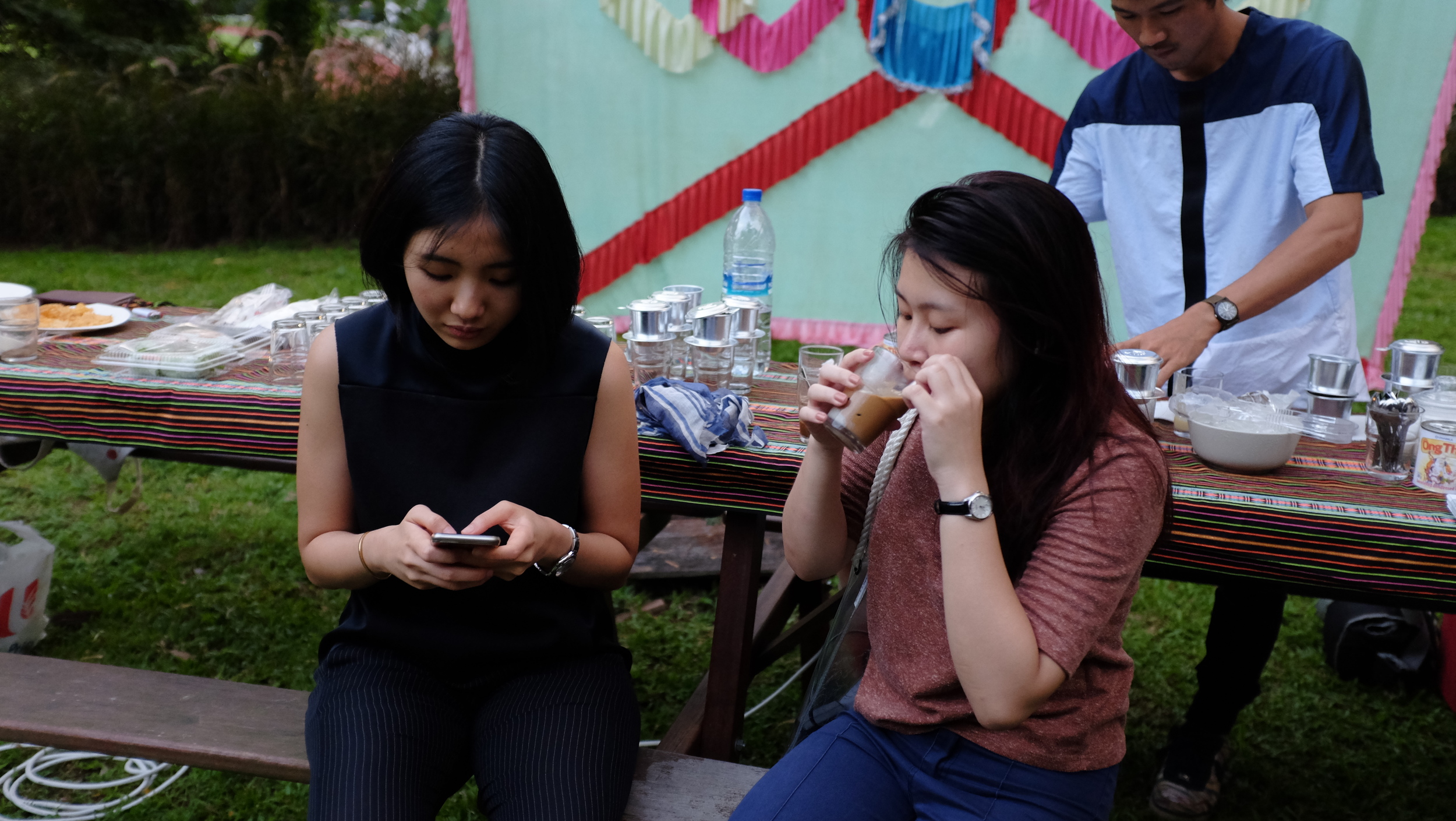
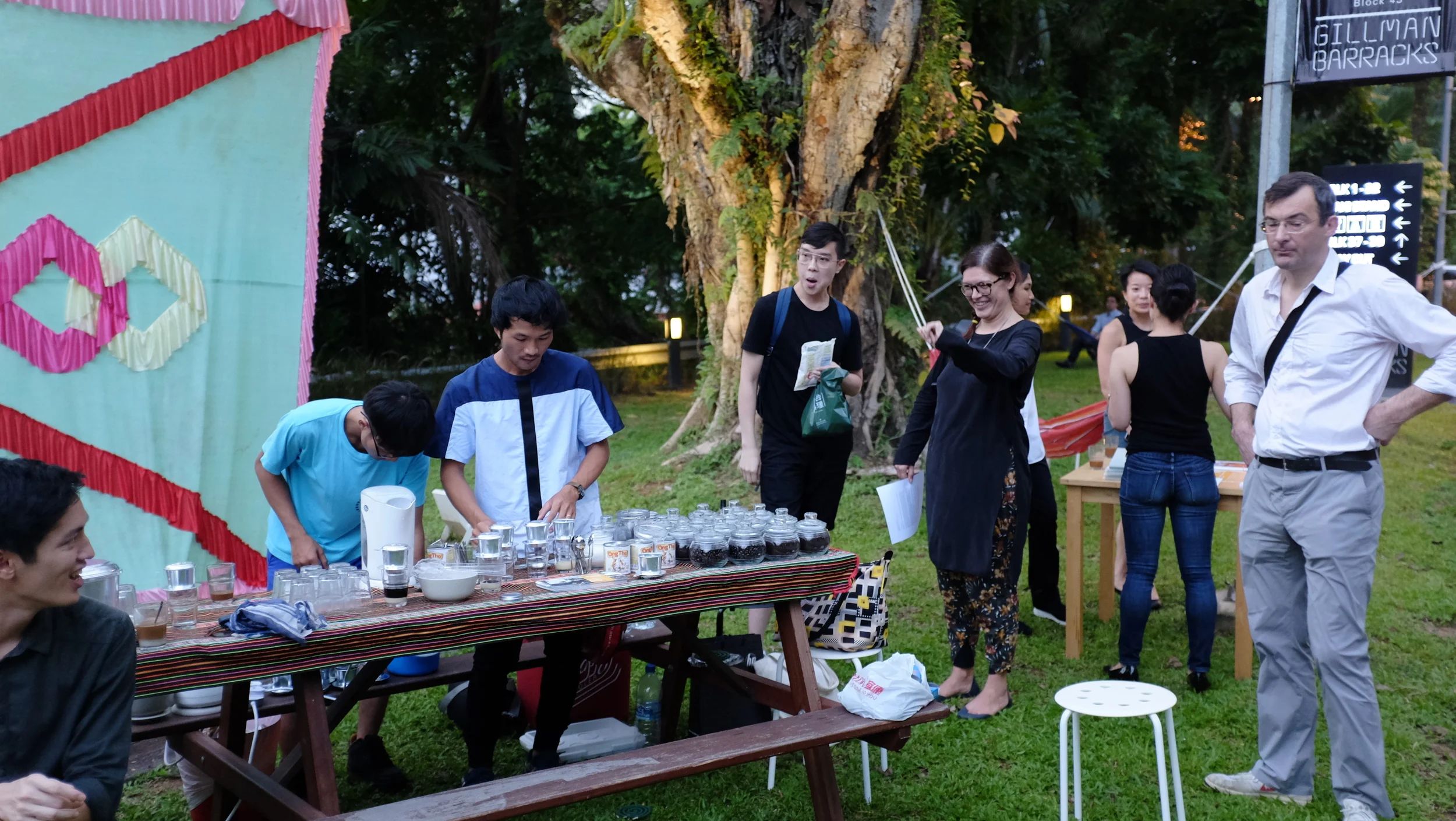
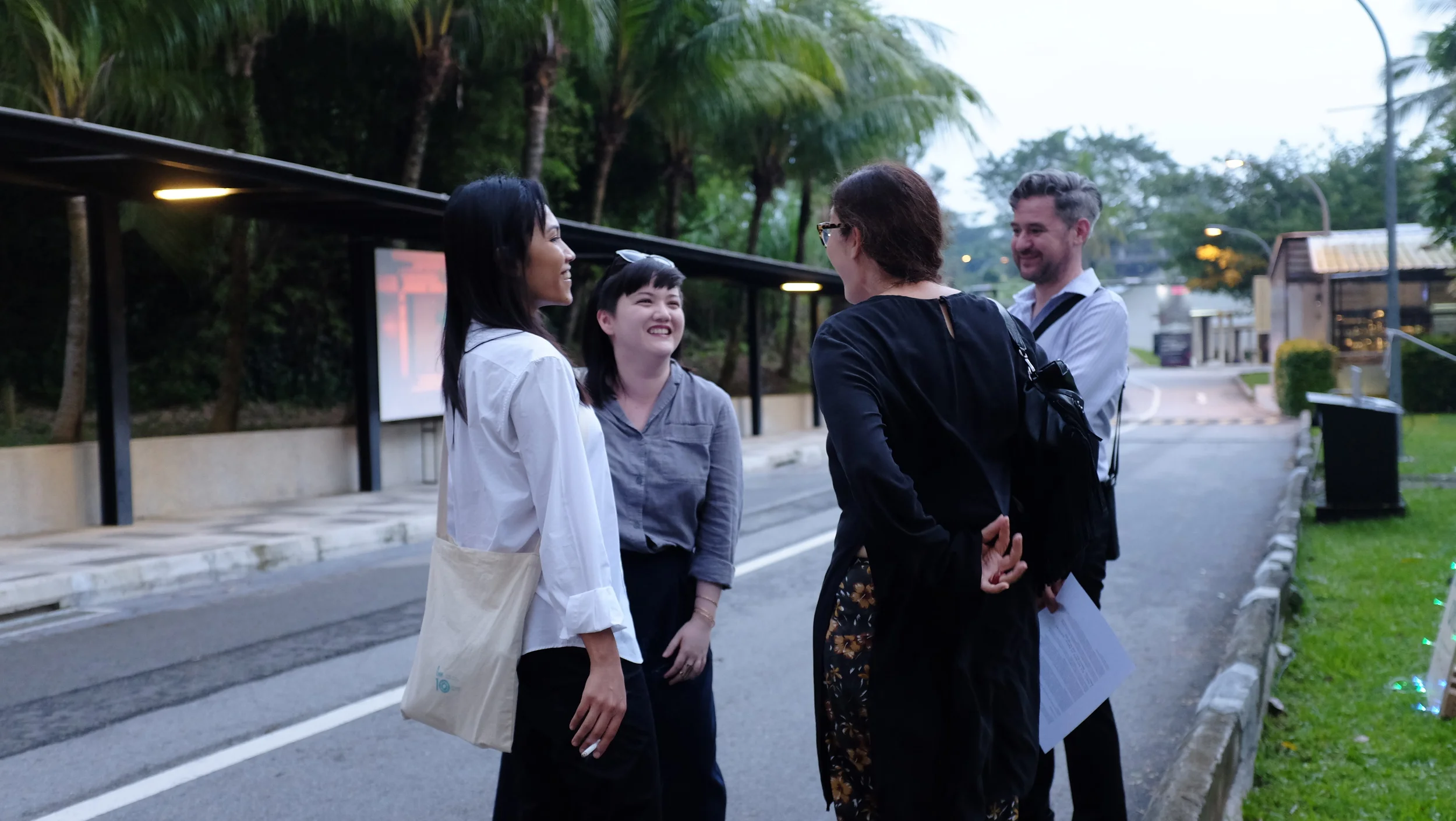
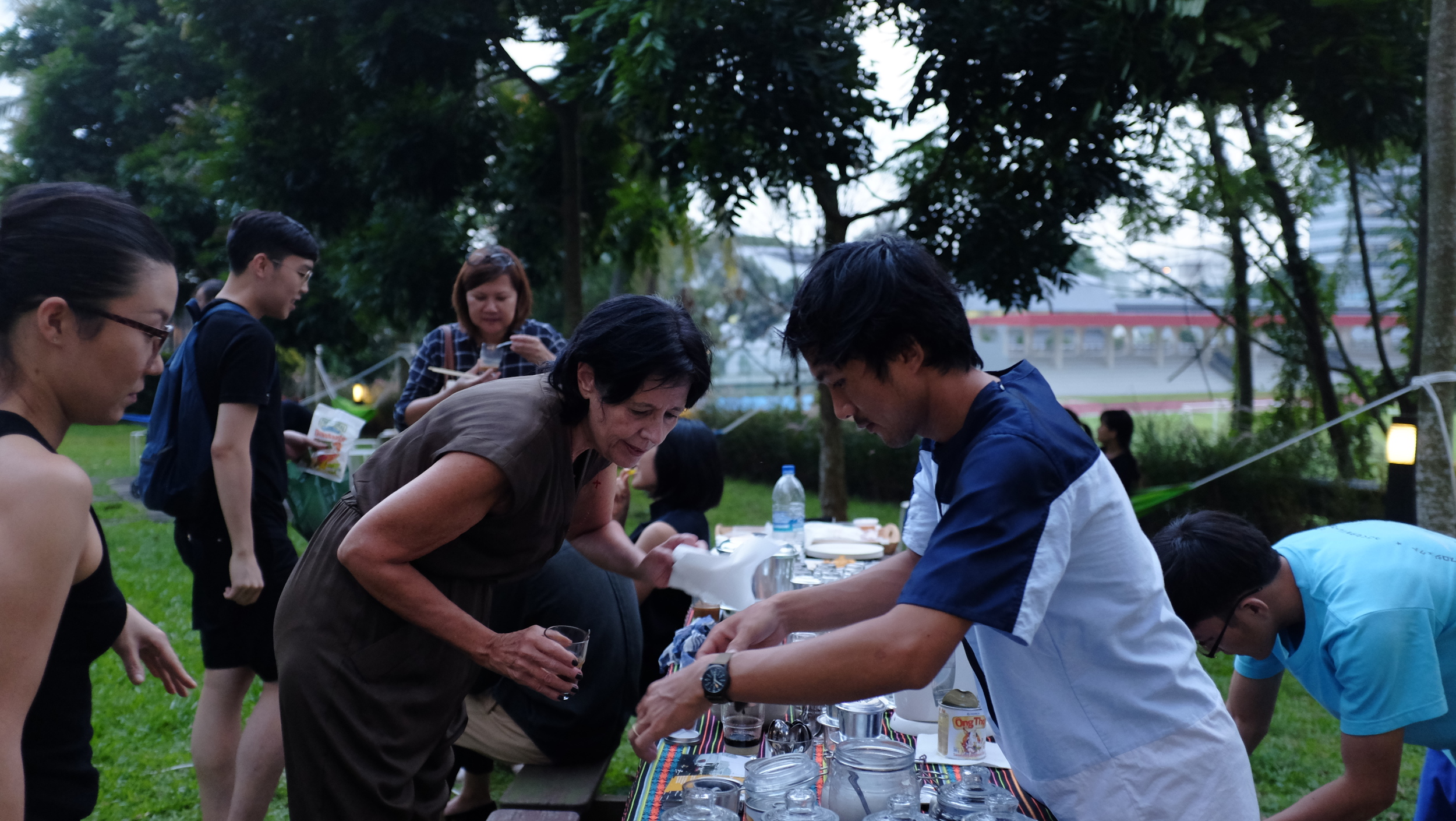
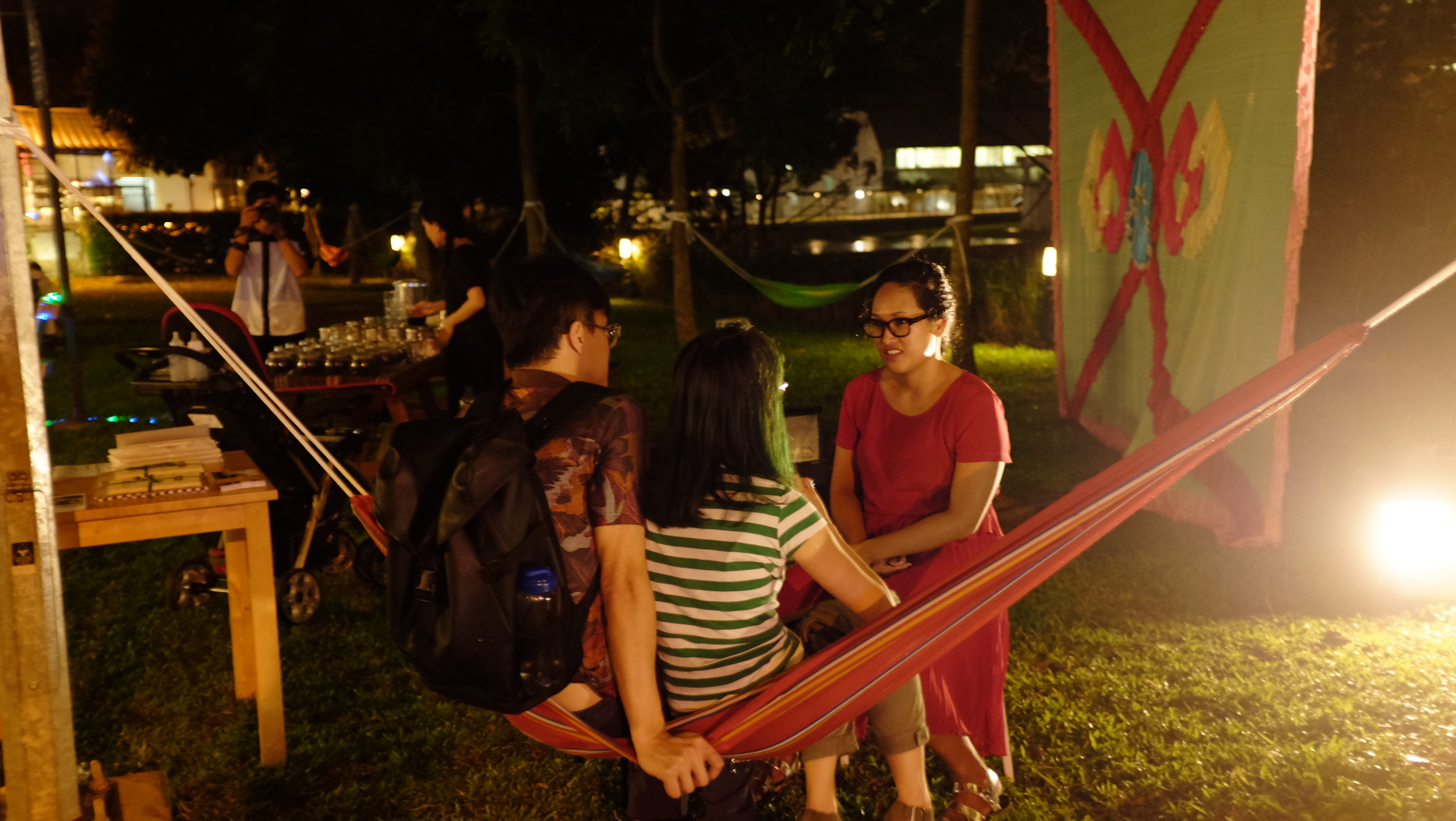
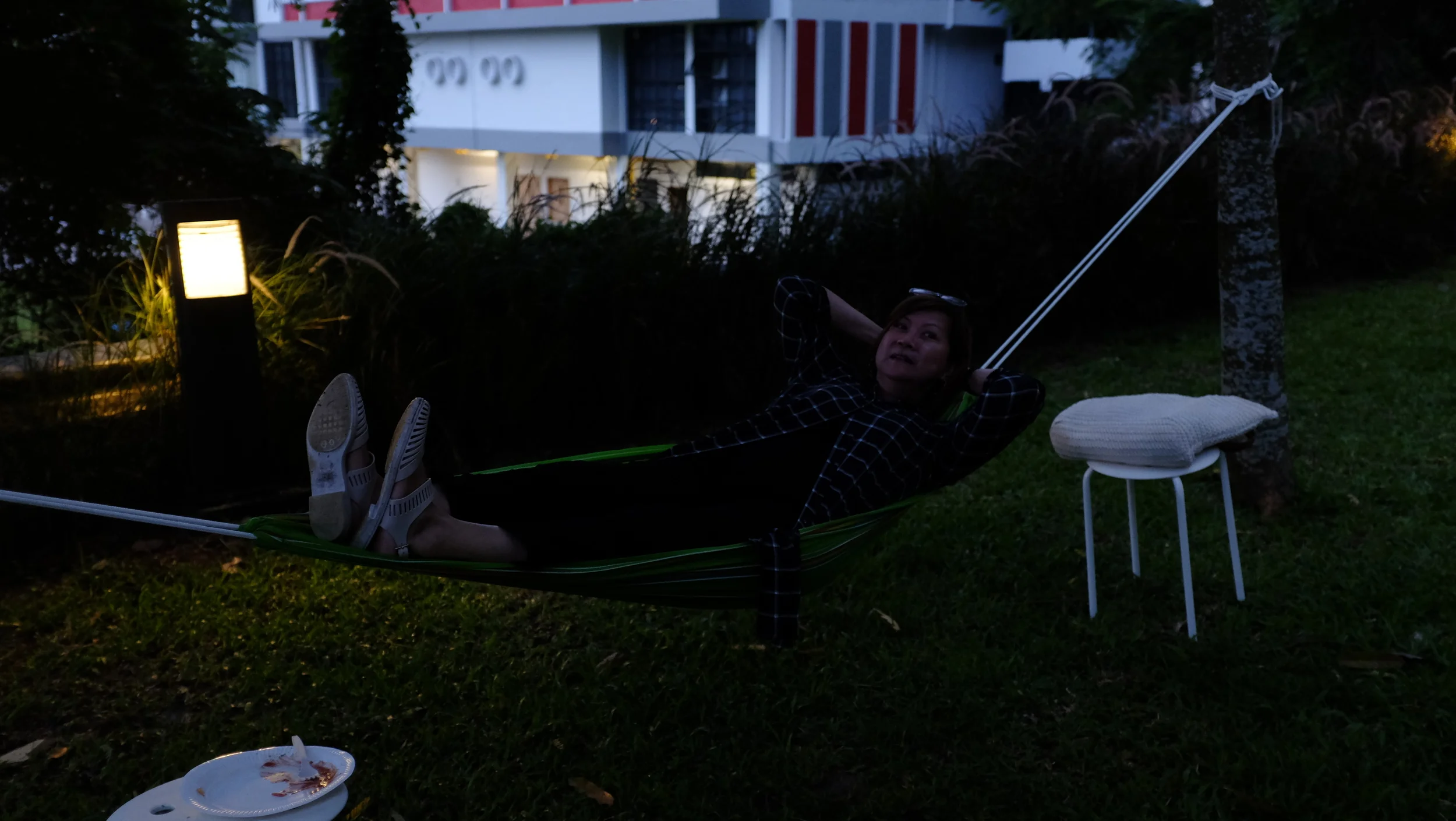
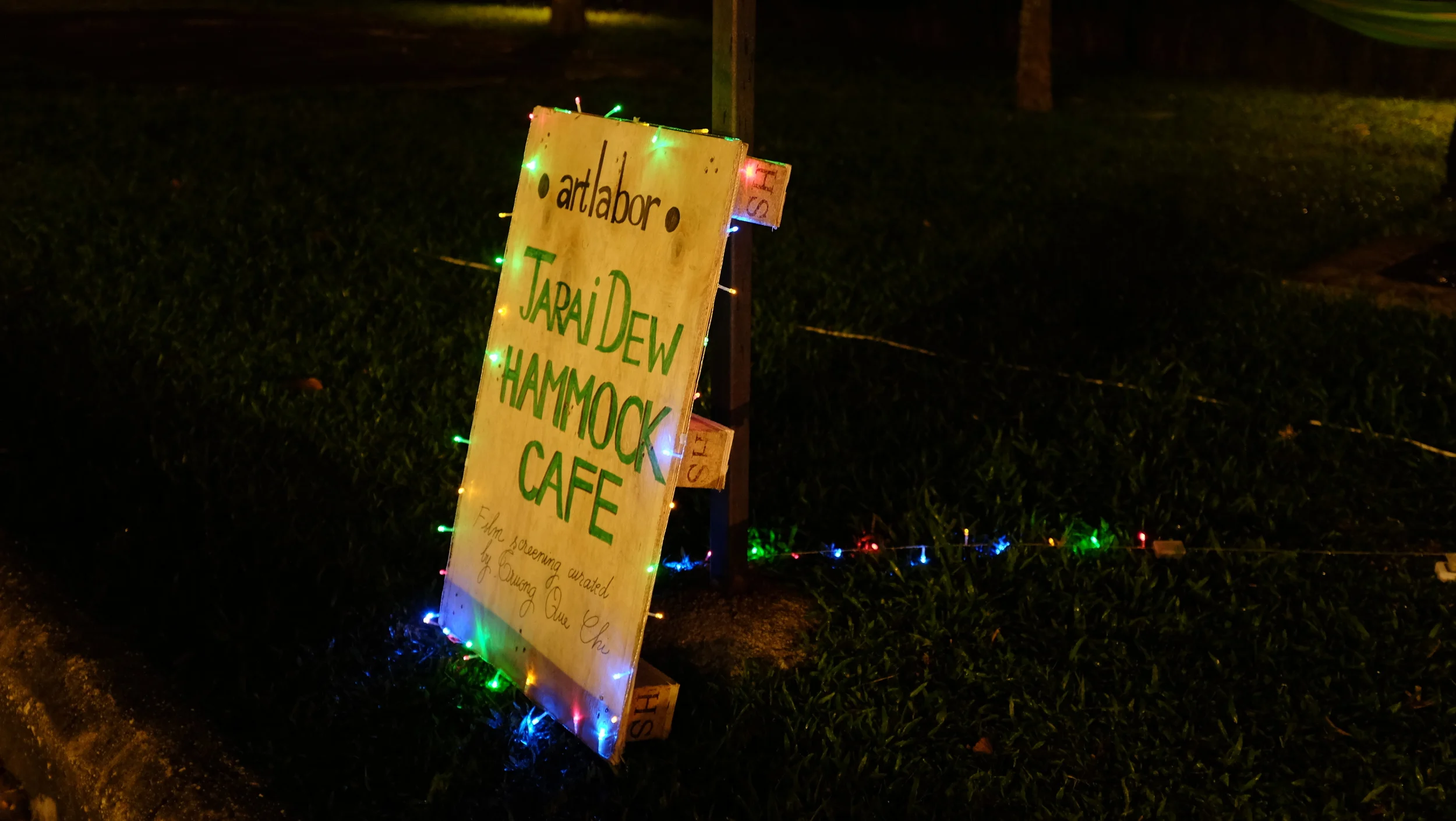
Sketch for Jarai Dew hammock cafe
Sketch for Jarai Dew hammock cafe
